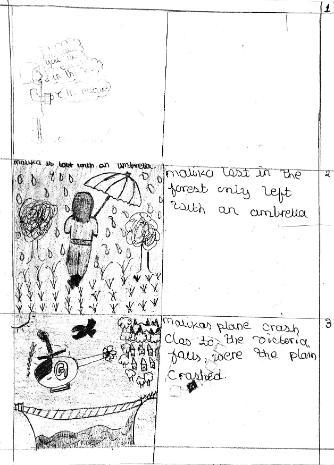Episode 81: Julie Ward on the No To Hassockfield campaign
In this episode, Julie Ward, former MEP with a background in activism, talks about the Durham-based 'No To Hassockfield' campaign. Hassockfield is the site of an Immigration Removal Centre and the campaign was fighting for its closure, uses creative arts as a powerful tool to raise awareness of the harms caused by asylum detention and the need to provide community alternatives, whilst also providing a culture of care for the campaigners.
This presentation was recorded at the UNESCO RIELA Spring School: The Arts of Integrating 2025. This event gets hosted annually in person in Glasgow, Scotland in May and online in October. For her presentation, Julie was supported by her colleague Alison Stancliffe.
Abstract
The No To Hassockfield is a multi-year campaign. Creative arts are fundamental to the campaign, including community choirs, musicians and poets who perform at our regular demonstrations. A visual artist helped create colourful banners and placards through participatory workshops. A sewing group embroidered orange hearts to tie ontofences. At the beginning of the campaign we created a 'Newspaper Theatre' event using published material about institutional racism within the detention business. Socially engaged photographers document our work. On notable dates we deliver gifts for the imprisoned women, eg. cards and flowers on Valentine's Day. We run pop-up workshops during regular demonstrations which are especially enjoyed by children and parent/carers, eg. art/collage, posy-making using dried herbs.
For more information, please visit the campaign website.
Download the transcript of E81.
Julie Ward is a former MEP with a background in cultural activism. From 2014-20 she served on the European Parliament's Committees for Culture & Education and Women's Rights & Gender Equality. In 2021 she found herself at the centre of a campaign against the re-opening of a notorious Home Office facility for women seeking sanctuary. Julie is a founder member of the No To Hassockfield Campaign. She is also a board member for various organisations including Culture Action Europe, Festival of Thrift, Newcastle Circus Arts and the Berlin-based Civil Society Forum. When she isn't campaigning she goes foraging and looks after her grandchildren.
Note: SYMAAG attended the national demonstration on 18th November 2023 in a partnership with People and Planet, Sheffield Solidarity Group, Sheffield Action Group, and Sheffield Student Action for Refugees. According to: https://www.symaag.org.uk/wp-
Note: After Julie's presentation a fellow campaigner from No To Hassockfield, Alison Stancliffe, ran a card-making workshop whereby Spring School participants made cards bearing solidarity messages to give to the women in Derwentside IRC.
Names and organisations mentioned:
- Yarl’s Wood Befrienders, now called Beyond Detention
- Bill MacKeith, organiser for the Coalition to Keep Campsfield Closed.
- Agnes Tanoh, key speaker from Women For Refugee Women.
- Roza Salih, Scottish politician and human rights activist.
- South Yorkshire Migrant and Asylum Action Group (SYMAAG)
- Rosa Stourac McCreery, theatre and clowning practitioner, director and founder of Forum Theatre NE
- Dead Canaries Samba Fusion Collective
- Northern Outcry, community choir
- Jane Gower, artist — @jane_gower on Instagram.
- Simone Rudolphi, photographer
- Greg Constantine, photographer for Seven Doors.
- Dr. Helen Groom, chair of the No to Hassockfield campaign.
- Crossings, band
- Sheffield Solidarity Group — @sheffsolgroup on Instagram.
- Sheffield Action Group — @sheffield_action_group on Instagram.
- Sheffield Student Action for Refugees
- Alison Stancliffe, organiser for the No to Hassockfield campaign.
Back to the main podcast page
Episode 80: Good News by David Gramling
This episode is a recording of the opening keynote address Prof David Gramling delivered at the UNESCO RIELA Spring School: The Arts of Integrating 2025, in Glasgow, Scotland. Here is the abstract:
Good News
Bernice Johnson Reagon once sang for us a corrective teaching, along the lines that: “It’s ‘good news’ when you reject things as they are. […] And they don’t say ‘it’s good times’, they say ‘it’s good news’.” Fifty years later, these are definitely not good times. And, in this powerfully strange moment, even looking around for ‘good news’ often feels inappropriately consolational, often at fatal odds with the dreads and taunts of today’s geopolitical realism. This opening talk for our Spring School welcomes in the resources of “untimely optimism” (Feldman 2023), “out-of-phasedness” (Doumani 2007), “gramáticas de lo inaudito” (Acosta López 2023) and “anticipatory illuminations” (Bloch in Zipes 2019), in hopes of making room for a peace-in-this-time whose living vitality is the opposite of resigned quietism. To that end, we will meet head-on a few of the nightmares-of-the-self that may well haunt a peace-lover in Spring of 2025, seeking to expel that haunt and conjure in its place some unprecedented good news.
David Gramling (they+) is author, editor, or translator of eight books in print: Literature in Late Monolingualism (Bloomsbury 2024); The Invention of Multilingualism (Cambridge University Press, 2021); The Invention of Monolingualism (Bloomsbury 2016, American Association for Applied Linguistics Book Award, 2018); co-author of Palliative Care Conversations: Clinical and Applied Linguistic Perspectives (De Gruyter 2019, with David’s big brother Robert Gramling); Linguistic Disobedience: Restoring Power to Civic Language (Palgrave 2019, with Yuliya Komska and Michelle Moyd); Germany in Transit: Nation and Migration 1955–2005 (University of California Press 2007 with Deniz Göktürk and Anton Kaes); and Transit Deutschland: Debatten zu Nation und Migration (Konstanz University Press / Wallstein Verlag, with Deniz Göktüurk, Anton Kaes, and Andreas Langenohl). David’s book-length co-translation (with Aron Aji) of Murathan Mungan’s Turkish-language Shahmeran story cycle Valor: Stories (Cenk Hikâyeleri) was published in Fall 2023 with Northwestern University Press, and made possible by a 2021 Global Humanities Translation Prize from Northwestern University. Future books include Translating Transgender (with Aniruddha Dutta, Routledge 2026), and Aloof: On Seeing Less than you Should, which details David’s lifelong social and logistical adventure with their ocular albinism, a rare congenital visual Disability.
Back to the main podcast page
Episode 79: ESOL, linguistic landscapes and translanguaging pedagogy with Daniel and Mohammad
In this episode, Elder in Residence Mike Gonzalez interviews Mohammad Alkhatib and Daniel Calvert about teaching languages, inclusion, second language acquisition, ESOL, linguistic landscapes and translanguaging pedagogy. Please scroll down for their short biographies.
Mohammad Alkhatib is an ESOL/EAP tutor and was a postgraduate researcher in Theoretical Linguistics at University of Malaya and Sociolinguistics at University of Glasgow.
Daniel Calvert is a postgraduate researcher in sociolinguistics at the University of Stirling, researching inclusive communication in support services accessed by refugee and migrant groups in Glasgow. The research paper he talks about in this podcast can be found here: https://tinyurl.com/languageinclusion
Mike Gonzalez is Elder in Residence with the UNESCO Chair in RIELA. He was professor of Latin American Studies at Glasgow University before he retired. His parents were both exiles - his mother an Austrian Jew expelled by the Nazis, his father a Spanish Communist who left at the end of the Spanish Civil War. Mike has written on Latin American culture, history and politics and worked with Alison Phipps on language and translation.
Back to the main podcast page
Episode 78: Jo Beall on her debut novel Meadowlands Dawn
In this episode, Dr Tawona Sitholé speaks with academic and author Jo Beall (FAcSS) about her debut novel, Meadowlands Dawn, set in apartheid South Africa during the 1980s. Their conversation explores Jo’s personal connection to the story, how she switched from academic to creative writing, and the important distinction between love and infatuation.
Dr Tawona Sitholé is a poet, playwright, mbira musician, educator and facilitator. He is Lecturer in Creative Practice Education with the UNESCO Chair on Refugee Integration through Education, Languages, and Arts (UNESCO RIELA).
Jo Beall, FAcSS, is a British economist and academic, specialising in development studies, economic development and economic history. She studied economic history at Natal University, receiving her Bachelor and Master of Arts from there. While a student in South Africa, she became involved in anti-apartheid activism and the United Democratic Front. She continued her studies at the London School of Economics in England, graduating with a PhD titled "Households, livelihoods and the urban environment: social development perspectives on solid waste management in Faisalabad, Pakistan". Jo was the Professor of Development Studies at the LSE in 2001 and director of its Development Studies Institute from 2004 to 2007. Between 2009-2011, she was the deputy vice-chancellor (academic, external relations and international) at the University of Cape Town. From 2011 to her retirement in 2019, Jo was director (education and society) at the British Council. Since 2019, she has been emeritus professor and a distinguished research fellow at the LSE.
Rough timings of this week’s episode:
0 – 2’ – Tawona introduces Jo and her novel, Meadowlands Dawn
2’ – 2’30” – Jo discusses how it feels to release her first novel
2’30” – 2’30” – feedback to the book from friends and strangers
4’30” – 8’45” – moving from academic writing to creative writing
8’45” – 13’ – discussion of writing from different racial perspectives than your own
13’ – 16’ – how far has South Africa come with race relations since the apartheid?
16’ – 19’30” – questioning the meaning and practice of integration
19’30” – 21’30” – the people who helped and inspired Jo throughout the creative process
21’30” – 23’30” – how deliberate was Jo in making this novel a multilingual text?
23’30” – 25’30” – love vs infatuation as a theme in the book
25’30” – 29’ – Tawona and Jo reflect on the courage of the characters throughout the story and the courage of Jo for writing the book
29’ – 33’30” – Jo discusses generational differences in South Africans discussing the apartheid, and what the younger generation can draw from the book
34’ – 36’30” – how Jo came up with the title ‘Meadowlands Dawn’ for her book
37’ – 42’30” – Jo reads an extract from the novel
42’ – 43’ – how it feels to be reading from your own published book
43’ – 44’30” – advice for first-time creative writers
44’30” – 46’30” – Jo talks about her future writing plans
46’30” – 47’30” – thank you and goodbyes
Back to the main podcast page
Bonus episode
This is a wee bonus episode as part of our virtual 2024 advent calendar. Merry Christmas from the RIELA team!
Speakers and languages, in order of appearance:
- Rebecca Rae - intro
- Esa Aldegheri - Italian
- Bella Hoogeveen - Dutch
- Hyab Yohannes - Blin
- Rebecca Rae - Spanish
- Alison Phipps - Scottish Gaelic, German, French & English
Back to the main podcast page
Episode 76: Exploring the Drawing Together project (pt2)
In this episode, Alison Phipps interviews Ravi Kohli, Sharon McGregor and Christine Uwase about the Drawing Together project, a project that looked at the relational wellbeing in the lives of young refugees in Scotland, Finland and Norway.
Led by Professor Ravi KS Kohli, the Drawing Together project works in partnership with three other research centres in Norway and Finland: Tampere University, NORCE and the Migration Institute of Finland, and an associate partnership with Western Norway University of Applied Sciences. CELCIS, the Centre for Excellence for Children’s Care and Protection, based at the University of Strathclyde, provides research support to the project’s Scottish team.
Please scroll down for the biographies of the speakers in this episode.
For more information about the project, please visit the website.
Biographies of the speakers:
Ravi KS Kohli is Professor of Child Welfare at the University of Bedfordshire. He is the Project Leader for the Drawing Together project. He has an abiding interest in the ways young refugees contribute to the generation of health, wealth and diversity in their new countries.
Sharon McGregor is a research associate at CELCIS, the centre for excellence for children’s care and protection at the University of Strathclyde. Sharon joined the Drawing Together project’s research team in 2021.
Christine Uwase was an ambassador on the project, working in Scotland and serving as a bridge between the researchers and the refugees involved in the project.
Alison Phipps holds the UNESCO Chair on Refugee Integration through Education, Language, and Arts.
Rough timings of this episode's content:
0 to 1m50s: Alison briefly introduces the Drawing Together project and team.
1m50s to 3m40s: Christine talks about her role as project Ambassador and what the project meant to her with Alison’s reflections and questions.
3m40s to 9m30s: Christine and Alison reflect on their involvement in the project and the value person methodology.
9m30s to 16m15s: Ravi reflects on the challenges of running an international project e.g., overcoming language and cultural barriers and the covid-19 pandemic, with Alison’s reflections.
16m25s to 20m25s: Kate reflects on her policy role in the project and the policy context of the project in Scotland.
20m25s to 24m35s: Sharon reflects on some of the project findings in relation to young refugees growing new roots in a new country and the importance of language, cultural, stability, security, with Alison’s reflections.
24m35s to 24m40s: Alison reflects on the project findings in relation to the New Scots Integration Strategy delivery plan.
24m40 to 29m50s: Christine reflects on the challenges young refugees overcome when they are setting up a new life in a new country, with Alison’s reflections.
29m50s to 33m33s: Kate reflects on the policy findings and the importance of relationships, nature, faith, navigation, technology, with Alison’s reflections.
33m33s to 37m20s: Sharon reflects on the research findings in relation to the important features of professional relationships from young refugees in the project, with Alison’s reflections in relation to the New Scots Integration Strategy.
37m20s to 43m25s: Kate reflects on the importance of nature, faith and access to digital technology and travel as noted in the project’s policy brief, and the importance of children’s rights, with Alison’s reflections.
43m25s to 49m39s: Ravi reflects on the personal, cultural and research consequences of the Drawing Together project, with Alison’s reflections in relation to the New Scots Integration Strategy.
49m39s: Closing remarks and Alison’s thanks.
Back to the main podcast page
Episode 75: Exploring the Drawing Together project (pt1)
In this episode, Alison Phipps interviews Ravi Kohli, Sharon McGregor and Christine Uwase about the Drawing Together project, a project that looked at the relational wellbeing in the lives of young refugees in Scotland, Finland and Norway.
Led by Professor Ravi KS Kohli, the Drawing Together project works in partnership with three other research centres in Norway and Finland: Tampere University, NORCE and the Migration Institute of Finland, and an associate partnership with Western Norway University of Applied Sciences. CELCIS, the Centre for Excellence for Children’s Care and Protection, based at the University of Strathclyde, provides research support to the project’s Scottish team.
Please scroll down for the biographies of the speakers in this episode.
For more information about the project, please visit the website.
Biographies of the speakers:
Ravi KS Kohli is Professor of Child Welfare at the University of Bedfordshire. He is the Project Leader for the Drawing Together project. He has an abiding interest in the ways young refugees contribute to the generation of health, wealth and diversity in their new countries.
Sharon McGregor is a research associate at CELCIS, the centre for excellence for children’s care and protection at the University of Strathclyde. Sharon joined the Drawing Together project’s research team in 2021.
Christine Uwase was an ambassador on the project, working in Scotland and serving as a bridge between the researchers and the refugees involved in the project.
Alison Phipps holds the UNESCO Chair on Refugee Integration through Education, Language, and Arts.
Rough timings of this episode's content:
0 to 4 mins: Alison introduces the Drawing Together project team
4 to 12 mins: Ravi introduces the project and Alison responds
12 to 17 mins: Sharon reflects on the participants and project methodology and Alison’s reflections and questions
17 to 20 mins: Sharon explains the meaning behind some of the participants’ art objects and Alison’s reflections.
20 to 26.5 mins: Ravi explains the rationale behind past/present/future time dimensions and Alison’s reflections and questions.
26.5 to 28.5mins: Ravi reflects on the ‘past’ time dimension and Alison’s reflections.
28.5 to 30mins: Sharon reflects on the past methodology and Alison’s questions.
30 to 37mins: Christine explains her ambassador role on the project and Alisons’ reflections and questions
37 to 41mins: Christine reflects on the international visit to Norway to meet the Norwegian and Finnish teams and Alison’s response
41 to 43.34mins: Alison’s closing remarks, thanks and invitation for recording a part two.
Back to the main podcast page
Episode 74: Poetry by the keynote poets of the Spring School 2024
This episode is a collection of 4 poems, written by the 4 keynote listeners Erdem Avşar, Adrianne Kalfopoulou, Herbert Cea and Heidi Perez-Cordero, who each summarised a day of the UNESCO RIELA Spring School: The Arts of Integrating 2024.
Erdem Avşar is a playwright, poet, researcher, and translator. He is an affiliate artist at UNESCO RIELA. He is also a PhD researcher at the University of Glasgow researching queer politics of theatremaking in Turkey. His plays have been shown in Scotland and Italy. He was the 2019 recipient of the Kevin Elyot Award (University of Bristol Theatre Collection). He was also one of the four winners of the 2017 EU Collective Plays! International Playwriting Competition. His work has recently appeared in clavmag, Lune Journal, in the anthology The Book of Bad Betties (Bad Betty Press), and in Collaborative Playwriting (Routledge).
Heidy M. Perez-Cordero is a Puerto Rican-Dominican poet, educator, drama artist, dancer and researcher. Very early, at the age of 7, she started processing her feelings, trauma and understanding of the world using poetry and drama. She has been an educator for over 19 years in Puerto Rico, US and UK. She has worked with charities, community groups, and heritage language schools in Cambridge since 2017. Currently, she is using poetry to analyse and explain the findings of her PhD research where she explores the formation of the professional identity of the Heritage Language Teacher through drama. Her poetry stands out for translanguaging and portraying the immigrant experience.
Adrianne Kalfopoulou is the author of three poetry collections, most recently A History of Too Much, and three collections of prose including On the Gaze: Dubai and its New Cosmopolitanisms. Her work has appeared in journals, chapbooks and anthologies including The Harvard Review online, World Literature Today and Slag Glass City. The re in refuge, her fourth collection of prose, is forthcoming in spring 2025 from Red Hen Press. She currently teaches General Education courses at RIT in Dubai where she is Associate Professor of Creative Writing. More information: www.adriannekalfopoulou.com
Herberth Cea is a published poet, with a bachelor's degree in psychology and he is an active Maryhill Integration Network Voices' member from El Salvador. He published the book El Libro de las Plegarias (2014), and a booklet called El Adiós de los Barcos (2019). His work has been included in bilingual anthologies and poetry magazines. Since his arrival to Glasgow his poetry works relate to migration experiences and the current situation in his native country.
Back to the main podcast page
Episode 73: Molly Gilmour on cross-cultural research collaboration in Lebanon
This episode is a recording of a session entitled 'Exploring creative, cross-cultural research collaborations: A case study of an MSF run thalassemia clinic in Lebanon', which was meant to take place at the UNESCO RIELA Spring School 2023, but which was cancelled because of the situation in Lebanon at the time. Dr Molly Gilmour has now kindly shared the research that she conducted, together with her colleagues Belal Shukair, Fatima El-Samman and Nader Tabri.
Molly Gilmour is a Research Fellow at the Humanitarian and Conflict Response Institute, University of Manchester. She was awarded the Lord Kelvin Adam Smith interdisciplinary PhD Fellowship (2018-2023) at the University of Glasgow for her research which asked how humanitarian medicine could be improved in Lebanon. She took her undergraduate degree in BA (Hons) Social Sciences and Cultural Innovation at Dublin City University in 2013 and her MSc in Migration and Ethnic Studies from the University of Amsterdam in 2015. Molly specialises in public health, forced migration and is dedicated to creating better equity in humanitarian aid structures. For more information about Molly and her work, please visit her website: www.mollygilmour.com/
Fatima El-Samman was the interpreter on the research project and worked through the languages of English and Arabic and provided significant cultural and contextual information throughout the research project.
Nader Tabri created the images below, part of the project. His multi-disciplinary approach to storytelling started with a career in film and media. Having explored different facets of television, film, and theatre they moved on to illustration, writing and performance in 2015. The narratives, often experimental and free-associative, reflect themes of memory, the unconscious, depression, alienation, existential angst, escapism and their relationship with structures of power.
Belal Shukair is an independent researcher, based in Lebanon. He was recruited by Molly when the covid-19 pandemic hit and she was prevented from travelling to Lebanon. Belal gathered all the research data and also shared important local knowledge, making him a vital part of the project.
For the slides of this presentation, please see our Slideshare page.
Nader created beautiful images for the project. Here is a selection:
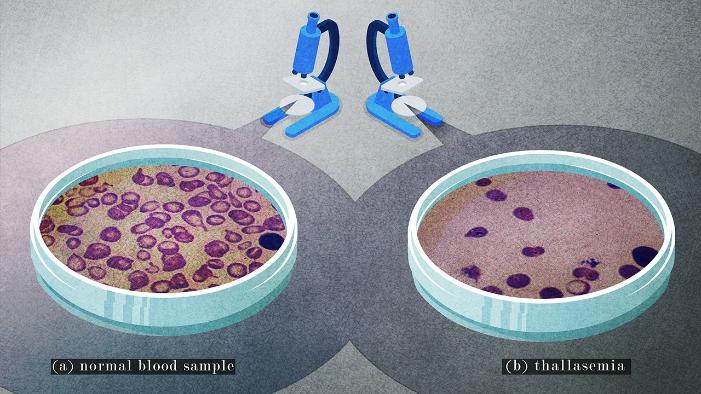
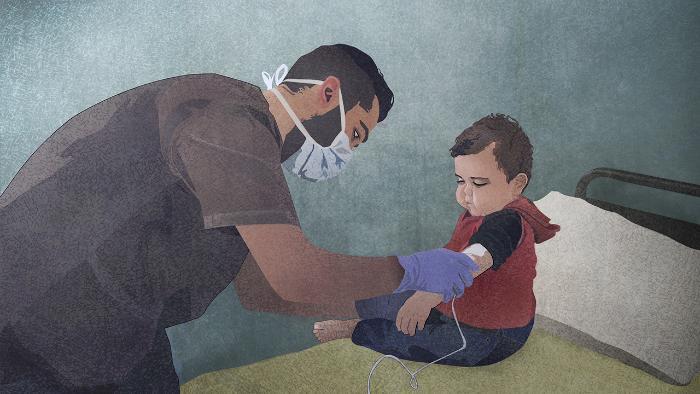
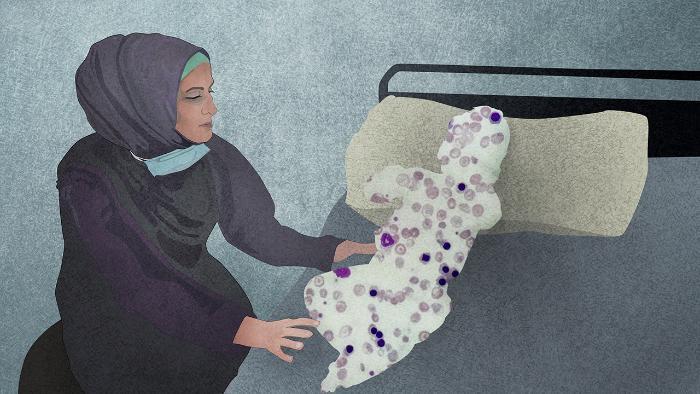
Episode 72: "The Language of the Law" with Pinar Aksu
In this episode, UNESCO RIELA PhD researcher Pinar Aksu discusses her workshop at the RIELA Spring School: The Arts of Integrating 2024 (Word Springs). Pinar's PhD research looks at the connection between art and law in the context of migration and how arts practices can be part of creating social change, as well as access to justice within the immigration system. Her workshop explored the language used to describe migration in headlines, legislation, policies, and by lawyers, and invited participants to bring the language of the law to life - and to create an alternative.
Pinar Aksu is a fourth year PhD researcher at the University of Glasgow, a theatre maker and community worker. Her research explores ‘Art and Law in migration: Using art practices for social change and access to Justice’. She is interested to find connections between solidarity, art, justice, and the law. Within her various roles, Pinar is involved with campaigns and projects supporting people seeking asylum and refuge, promoting integration and human rights. Pinar is also involved in using theatre and creative methods to create social change.
Mentioned in the episode:
- Illegal Migration Act 2023: Entry, settlement and citizenship
- Illegal migration: Dealing with inadmissable asylum applications
- Walker, P., 2023. Rwanda dreams and the wokerati: the many controversies of Suella Braverman. The Guardian, 10 November
- Syal, R., 2023. Painting over murals for children at asylum centre cost Home Office £1,550. The Guardian, 8 Aug
- Boal, A., 1998. Legislative Theatre, using performance to make politics. (A.Jackson, Trans.) London: Routledge
- Leeson, L., 2018. Art : process : change: inside a socially situated practice. New York: Routledge
- Dauvergne, C., 2008. Making people illegal: what globalization means for migration and law. Cambridge: Cambridge University Press
To access the slides from this presentation, please see our SlideShare page.
Back to the main podcast page
Episode 71: Michael Quinn: The Land Owns Us
This episode was recorded at the UNESCO RILA Spring School: The Arts of Integrating 2024. In it, Michael Quinn argues for the inclusion of stories in teaching, to add a philosophical dimension to traditional fact-based teaching methods.
Michael Quinn is currently undertaking a PhD project in the philosophy of education, focusing on the possibilities of teaching philosophical concepts through speculative fiction, here at the University of Glasgow. He completed a Joint Honours in English Literature and Philosophy in 2013 before an MLitt in Fantasy Literature in 2015, both at this same university. Michael has taught English literature in high schools for nearly a decade across Scotland, Spain and Australia, where he also visited sacred Indigenous sites and began teaching Indigenous creation stories, which he touches on in this episode.
The video referenced at 15:05 can be found here: Uluru Kata Tjuta National Park - Creation story (YouTube).
To access the slides from this presentation, please see our SlideShare page.
The introduction was by Bella Hoogeveen, the producer of this podcast.
Episode 70: Gaelic and the refugee experience
This episode was recorded at the UNESCO RILA Spring School: The Arts of Integrating 2024. In it, Gillebrìde Mac'IlleMhaoil / Gilbert MacMillan shares stories from South Uist and surrounding islands, as well as some Gaelic songs.
Gillebrìde MacMillan is a Senior Lecturer in Celtic and Gaelic at the University of Glasgow, as well as a renowned Gaelic singer and songwriter. He has released two albums of self-penned songs dealing with a range of social and political subjects as well as personal stories. He has performed his music at festivals throughout the world, and here at the University in the Celtic and Gaelic department he delivers lectures on Gaelic language and grammar, Gaelic song and poetry, and translation practice.
Listen to Gillebrìde's version of An teid thu leam a ribhinn lurach on Spotify.
The introduction was by Bella Hoogeveen, the producer of this podcast.
Back to the main podcast page
Episode 69: Reimagining the Refugee Condition
In this episode, Margot Leys Johnston interviews Dr Hyab Yohannes from the UNESCO RILA team about his research into the 'refugee condition'.
Margot Leys is currently completing her MSc in Gender History at the University of Glasgow and volunteers with UNESCO RILA. Her research focus is in understanding concepts of gender and identity, factored by immigration, and how these fit in with historical perceptions of Glasgow.
Dr Hyab Teklehaimanot Yohannes is a researcher with the UNESCO Chair in Refugee Integration through Languages and the Arts at the University of Glasgow. His work involves conducting research and synthesising findings to provide insights into theoretical, methodological, and policy-related questions. Recently, Hyab co-edited a Special Issue on Intercultural Knowledge Production for the Journal of Language and Intercultural Communication. Additionally, he has signed a book contract with Routledge for his upcoming publication entitled ‘The Refugee Abyss’. Hyab’s research interests include decoloniality, cultures of peace, political theories, and (b)ordering (physical, onto-epistemic, spatio-temporal, juridico-political, etc.).
Listen on Soundcloud
Back to the main podcast page
Episode 68: Who are we now? An exploration of modern Highland identity.
This episode is a rerecording of a session we hosted at the UNESCO RILA Spring School: The Arts of Integrating 2023, hosted by By Nadine Malcolm (Due North Studio), Lee McNeish (University of Edinburgh) and Cáit O'Neill McCullagh (independent poet). "Who Are We Now?" explores the destruction, and subsequent emergence, of culture in the northern Highlands, centred around the concepts of agency and ownership, and how destruction creates space for the new. How does learning about loss help give agency over the destruction of the Highland Clearances, and through that, create space for communities to forge their own present and futures. Asking the question; how has our culture loss and destruction led us to be who we are now, and what does that look like?
In the true spirit of the ceilidh, this work by its very nature should be collaborative. Whilst providing a framework, Nadine, Lee and Cáit invite community groups and individuals to reflect creatively on these topics to present a lively and open exploration of modern Highland identity.
A collaboration between Lee McNeish, social anthropologist from Edinburgh University, and Nadine Malcolm from Due North Studio, Who Are We Now? blurs the lines between anthropology and art. Emotive engagement leads in this multi-disciplinary approach, employing creativity to make research relevant and participatory to the communities concerned. This helps create space for alternative voices, and for the emergence of new perspectives.
Cáit O'Neill McCullagh got brought in for her poetic aesthetic. She began composing poetry in December 2020, drawing on her work and research exploring how communities across the Highlands and Islands engage with creative expression to explore diverse heritages and the ways in which these relate to sustaining more positive and possible futures. Her poetry and developing reputation in facilitating creative writing is founded in her interest in the effects of migration on belonging and inclusion for and with people and places, based on her own migrant lineage.
The introduction was by Rachel Burke, Senior Lecturer in the School of Education at the University of Newcastle, Australia. Rachel’s research, teaching, and advocacy focus on linguistically and culturally diverse contexts, with emphasis on strengths-based approaches to education for learners from traditionally underrepresented backgrounds, including people with refugee and asylum seeker experiences. Rachel is privileged to partner with a range of communities in exploring possibilities for educational practices that honour diverse linguistic repertoires. She is co-chair of Australia’s RESIG: the Refugee Education Special Interest Group.
Other voices you'll hear are from Bella Hoogeveen, the producer of this podcast, and from guest Roxanne.
Content credits:
Poem: This is Not a Beach by Gail Anthea Brown
Excerpt from: Hindsight: In Search of Lost Wilderness, by Jenna Watt
Jenna Watt is award-winning Highland theatre maker and writer currently based in Glasgow. In this excerpt from her non-fiction book Hindsight: In Search of Lost Wilderness, Jenna shares some reflections on her evolving relationship to land, conservation and deer as a Highland woman after an experience of hind stalking on a Highland estate, prompts her to reconsider her own agency and relationship to aspects of Highland culture and her Highland identity.
Thank you to all who took part in the NW2045 RLUP Dare to DREAM sessions for sharing their inspiring future visions with us.
Listen on Soundcloud
Back to the main podcast page
Episode 67: Власними словами | In Our Own Words: Multilingual Translation Workshops
In this episode, James Rann and Katherine Mackinnon introduce their project 'Власними словами | In Our Own Words', which is a project that brings Ukrainians in Glasgow together with other Glaswegians and uses creative writing and multilingual translation to build confidence, community and mutual understanding.
It is a fantastic project, worth checking out, please click this link for more info.
Katherine Mackinnon is a part-time PhD researcher at the University of Glasgow, working on an oral history of refugee lives in Scotland from the 1970s to the present day. Her professional background includes work in refugee integration, prison education and community development. Alongside her PhD, Katherine is a writer and workshop facilitator, working with groups to read and write poetry and explore creative ways of documenting everyday life.
James Rann is Lecturer in Russian at the University of Glasgow. Among other things, his research focuses on experimental poetry, translation and multilingualism, as well as the interaction of all those things, with a particular emphasis on cultural connections between Eastern Europe and Scotland. You can read more about that research here. When he can find the time, he is also a translator from Russian. He is currently learning Ukrainian.
Mentioned in the episode:
Common Ground
Edwin Morgan's The Loch Ness Monster's Song
Association of Ukrainians in Great Britain
The book will be published by Tapsalteerie Press
Song 'Coorie Doon', by Matt McGinn
Listen on Soundcloud
Back to the main podcast page
Episode 66: Sawsan Abdelghany on ESOL and the New Scots Refugee Strategy
This is the second of a two part conversation between Dr Dan Fisher, and researchers Sawsan Abdelghany, and Adam Williamson on their work on ESOL in the asylum system. In this episode, Dan and Adam are interviewing Sawsan.
Sawsan Abdelghany is a postgraduate researcher at the University of Glasgow, and a heritage language tutor. She graduated from the University of Edinburgh with a Masters in TESOL and has worked as an English-Arabic interpreter for asylum seekers and refugees in the Scottish legal system. Her research interests centre around the role of language in helping refugees to integrate.
Episode 65: Adam Williamson on interpretation in the UK asylum system
This is the first of a two part episode in which Dr Dan Fisher talks with Sawsan Abdelghany and Adam Williamson on their work on ESOL interpretation in asylum appeals. In this part, Sawsan and Dan are interviewing Adam. Please scroll down for Adam's biography.
Adam Williamson is a freelance translator and interpreter based in Paris, where he works with English, Spanish and French. He began his interpreting career in the asylum system in Glasgow, where he encountered a variety of challenging circumstances and ethically compromising situations for which he felt his interpreter training had not fully prepared him. These experiences led him to complete an MPhil by research at the University of Glasgow, under the supervision of the UNESCO RILA team. Chiefly drawing on participant observation and interviews, his study looks at the mismatch between the expectations of interpreters in the asylum context and the reality on the ground. The research also includes a series of recommendations which will feed into the third iteration of the Scottish Government’s New Scots Refugee Integration Strategy.
Episode 64: Afamba Apota - radioplay by Tawona Sitholé
Made as part of the research on global migration through the MIDEQ hub, this piece is made through the power and beauty of collaboration and generosity of relationships. Written by Tawona Sithole and celebrating the talents of Kevin Murray in sound design, Mariem Omari in dramaturgy, and a host of readers from our UNESCO-RILA team at University of Glasgow, colleagues from the MIDEQ hub, and other critical friends.
Afamba apota is a Zimbabwean proverb recited to remind ourselves of the unpredictability of going on a journey. This radio play is a playful look at the important matter of migration. Join self-proclaimed master documentary maker Paul Lamont as he enters the migration corridor and meets the inhabitants.
A full list of credits can be found on the MIDEQ website.
Download the transcript of E64.
Listen on Soundcloud
Back to the main podcast page
Download the transcript of E64
Read the full list of credits
Episode 63: Mukuka Kasonde and Brice Catherin's storytelling project in Zambia
In this episode, we hear from Mukuka Kasonde and Brice Catherin about their project Our Stories: a series of storytelling workshops in Zambia to create children's literature with a local slant. They are interviewed by Olivia Ndoti. For the full show notes including biographies, please scroll down.
Download the transcript of E63
Mukuka Kasonde is a PhD candidate at the University of Huddersfield Business School. Her research investigates and evaluates calls for the decolonisation of higher education by exploring the perspectives and everyday experiences of academic practice and pedagogy within the business school. She is particularly interested in attitudes and everyday experiences that relate to race, cultural identity and academic identity. Her other research interests include the history of business schools as sites of management education, leadership, alternative forms of organising, ethics, and humour. She is supervised by Dr Simon Kelly and Dr Shelley Harrington.
Brice Catherin is an artist and doctor in music composition (university of Hull). He has 17 years of experience as an independent musician, intermedia artist and performance artist, and 6 years of experience as an art researcher. His transversal and international approach to art practices has led him to collaborate with artists from all over the world. He also develops art projects across disciplines with non-artists from the Global Majority as well as under-represented and/or marginalised populations in Europe andsouthern Africa.
Olivia Ndoti is a community development officer with a masters in Global Migration and Social Justice from the University of Glasgow. She is the founder of Women Integration Network and the director of Community InfoSource.
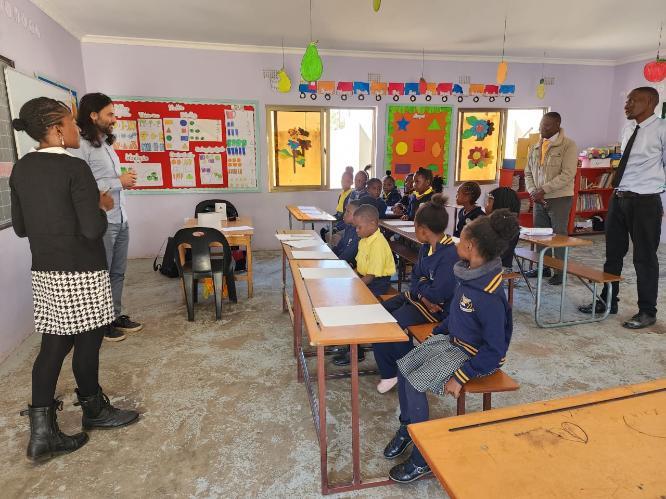
Brice & Mukuka hosting a workshop at the Premier Ladybird Learning Centre in Ndola, Zambia.
A storyboard from the same workshop.
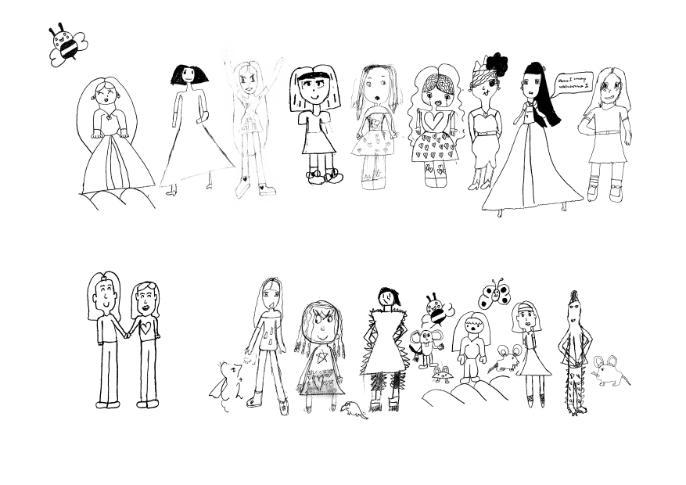
Portraits of the characters.
Episode 62: Narjes Hashemi on Afghan refugees in Canada
In this episode, Narjes Hashemi speaks with Fatemeh Hasani Najafi & Mir Soltan, the co-founders and directors of MAWJ:Afghan Cultural Association of Canada, about their work to preserve Afghan cultural heritage. Please scroll down for the full show notes.
Download the transcript of E62
Narjes Hashemi is a PhD candidate in educational studies at McGill University studying the educational trajectories of Afghan refugees in Canada. She was a visiting scholar at UNESCO RILA in the summer of 2023.
Fatemeh Hasani Najafi & Mir Soltan are the co-founders and directors of MAWJ: Afghan Cultural Association of Canada, since 2009. Their aim is to provide support to the Afghan community and to make Afghan culture available for Afghans living in Canada. For more information, please visit their Facebook page.
Listen on Soundcloud
Back to the main podcast page
MAWJ: Afghan Cultural Association of Canada
Download the transcript of E62
Episode 61: The Strengths Approach in Practice
Listen to Esa Aldegheri interview Avril Bellinger and Deirdre Ford about their book 'The Strengths Approach in Practice: How It Changes Lives'. An incredibly uplifting conversation, just what we need in these challenging times. Please scroll down for the full show notes.
Dowload the transcript of E61
Avril Bellinger, Honorary Associate Professor in Social Work, University of Plymouth UK, is an academic activist, international volunteer, founder of Students and Refugees Together (START), co-author of The Strengths Approach in Practice: How It Changes Lives, grandmother and allotmenteer.
Deirdre Ford is a registered social worker, associate of Research in Practice, trustee of Students and Refugees Together (START) and co-author of The Strengths Approach in Practice: How It Changes Lives.
Buy the book: policy.bristoluniversitypress.co.uk/the-strengths-approach-in-practice
The people, books and videos that were mentioned in the interview are:
- Rutger Bregman – Humankind: A Hopeful History
- Robin Wall Kimmerer – Braiding Sweetgrass
- Guy Standing – The Blue Commons: Rescuing the Economy of the Sea
- Gerard Egan – The Skilled Helper
- Article by Prof Michael Mann: http://www.meteo.psu.edu/holocene/public_html/shared/articles/mbh98.pdf
- Lois Klassen: https://lightfactorypublications.ca/artists-authors/lois-klassen/
- Videos from Cornwall resettlement service for Refugee Week: https://www.cornwall.gov.uk/people-and-communities/refugee-resettlement/
Episode 60: Third Culture Dialoguing
At the UNESCO RILA Spring School: The Arts of Integrating, which took place in May 2023, Scotland-based curator Dr Deirdre MacKenna and psychologist Dr Laura Cariola hosted an online panel discussion, introducing their approaches to working with culturally plural mindsets.
Through relational and interdisciplinary frameworks, these researchers have initiated a new collaboration to explore what it means to be ‘Third Culture’, and are working to activate consideration of and give voice to people who don’t define their sense of identity through a single nation-state.
For growing numbers of people, describing “where I belong” or “where I’m from” is a challenge which cannot be described simply by indicating a single location/community; their sense of constituency is formed from instances, durational periods, journeys and multiple places (both territorial and online) as well as a process of continuous resistance of the assumptions inherent within concepts of monocultural society.
This panel discussion provided a space to engage in an open, reflective interdisciplinary dialogue with a focus on the world from the perspective of Third Culture experiences, such as liminal places, belonging, and identity in-transition.
Download the transcript of E60
Dr Deirdre MacKenna is a programmer of contemporary visual art practising in Scotland and Italy, developing and leading initiatives and processes which activate knowledge and create connections for people through transdisciplinary dialogues. Her research investigates social and environmental change and new methods and models of culture production.
Deirdre is Founding Director of Cultural Documents, a non-profit which investigates and reifies place, language and identity.
Dr Laura Cariola is an applied psychologist at the University of Edinburgh. Her research focusses on the lived experiences of third culture kids and their mobile families. In partnership with the Forces Children Scotland and the Council of International Schools, her recent UKRI project focussed on how third culture kids use digital technology to keep in touch with her peers during global mobility. She is also the organiser of the ‘Child Migration and Mental Health’ course as part of the MSc Mental Health in Children and Young People: Psychological Approaches (Online Learning) at the University of Edinburgh.
Episode 59: Annie's Utopia: Weaving Dreams and Creating Change in New Lanark
On 14 October 2023, the UNESCO RILA team participated in the Fairies and Folktales event, held at New Lanark UNESCO World Heritage Site during the October week. Hope Wang, PhD candidate with the UNESCO RILA team, wrote a story for the event. Listen to her story and ask yourself: what is your utopia?
Download the transcript of E59
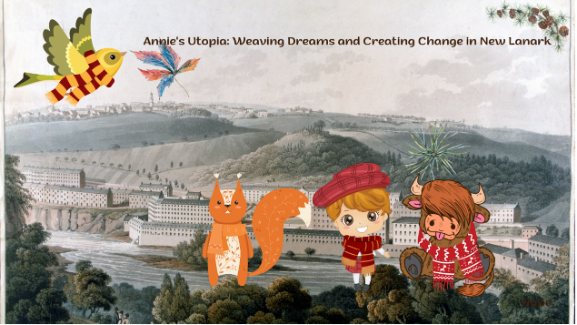
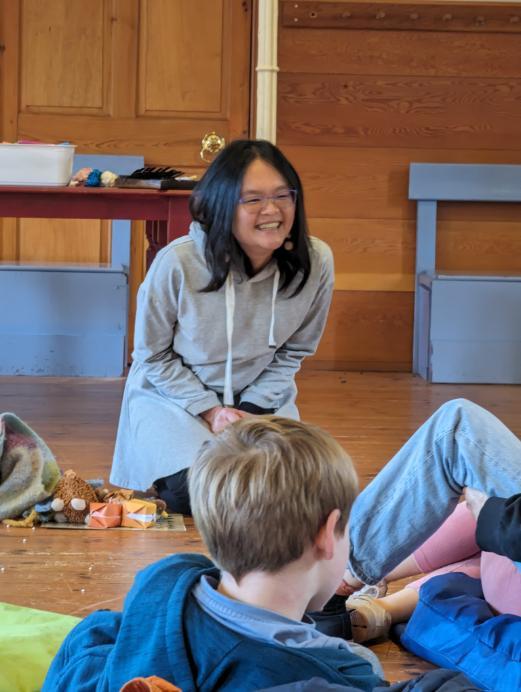
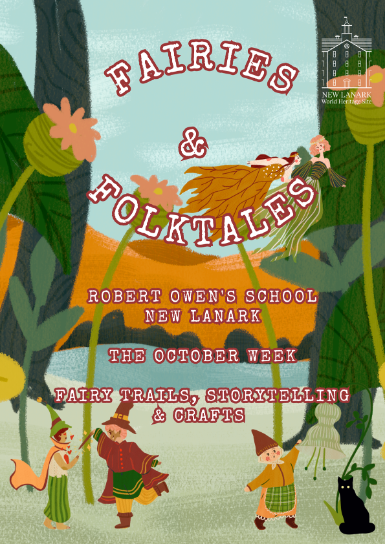
Episode 58: The Routledge Handbook of Refugee Narratives
TW from around 41:30: rape and trauma
In this episode we look at the Routledge Handbook of Refugee Narratives, which was published in February 2023. It is a conversation between one of the editors (Evyn Lê Espiritu Gandhi) and four chapter authors (Himadri Chatterjee, Agnes Woolley, Sydney Van To and Asha Varadharajan). Topics that get covered are the relationship between narrative and literature, between fiction and non-fiction, questions around witnessing and forgetting, traumatic repetition, the need to categorise, questions of audience, of purpose, individual versus communal trauma and contradiction within the narratives. Sociopolitical, historical, literary and legal perspectives all get covered in this fascinating discussion. Please scroll down for the biographies of the speakers.
Download the transcript of E58
Biographies of the speakers:
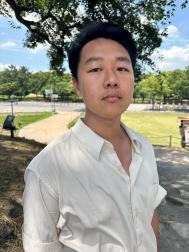
Sydney Van To is a PhD student at UC Berkeley. He is also the deputy editor of diaCRITICS and the project manager of Ink & Blood, an imprint which publishes literature of the Vietnamese diaspora. His writing has been published in Amerasia, Canadian Literature, and The Chicago Review of Books, among others.
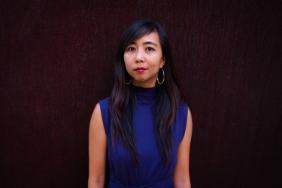
Evyn Lê Espiritu Gandhi is an associate professor of Asian American Studies at UCLA (Tovaangar). She is the author of Archipelago of Resettlement: Vietnamese Refugee Settlers and Decolonization across Guam and Israel-Palestine (University of California Press, 2022), and co-editor with Vinh Nguyen of The Routledge Handbook of Refugee Narratives (Routledge, 2023)
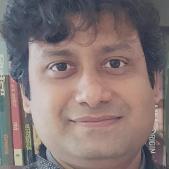
Himadri Chatterjee teaches political science at the University of Calcutta with a focus on emerging issues of local politics, region and identity formation, politics of caste, migration and development. He completed his doctoral research at the Center for Political Studies, Jawaharlal Nehru University in New Delhi. His thesis explored the connections between post-Partition displacement, refugee politics, resettlement and urbanization in Kolkata and its hinterlands - with a specific interest in caste and labor relations and their spatialisation in the urban periphery. He is currently engaged in research on the political ecological elements structuring caste inequalities and migration in eastern India.
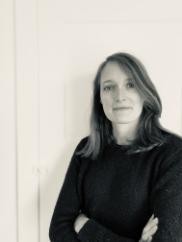
Dr Agnes Woolley is Lecturer in Transnational Literature and Migration Cultures at Birkbeck, University of London. Her research makes the case nationally and internationally for the emergent, multi-disciplinary field of Critical Migration Studies, focusing on literature, theatre and film. She is the author of Contemporary Asylum Narratives: Representing Refugees in the Twenty-First Century (Palgrave Macmillan, 2014) and has published extensively on asylum, refugee arts, climate change and contemporary literature. She is a regular blogger on migration issues and works with grassroots refugee organisations in London.
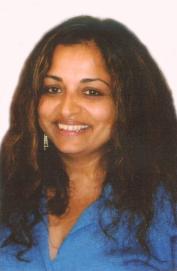
Asha Varadharajan is Associate Professor of English at Queen's University in Canada. She is in the throes of composing two books, Archaeologies of Nonentity: The New Realities of Forced Migration and Involuntary Displacement and "How to Kick Ass when Life's a Bitch": The Story of (Non)Human Rights.
Episode 57: Poetry by the keynote poets of the Spring School 2023
In May 2023, we hosted our annual UNESCO RILA Spring School: The Arts of Integrating, with the theme this year Culture Cèilidh. As part of the event, we invited four keynote poets, whose task was to summarise everything that was happening in a poem. In this episode, you will hear the four poems they created, read out by the poets themselves.
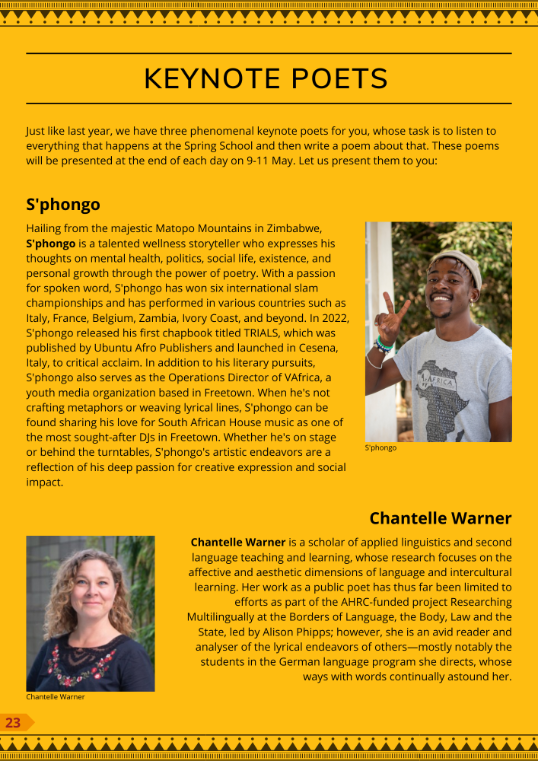
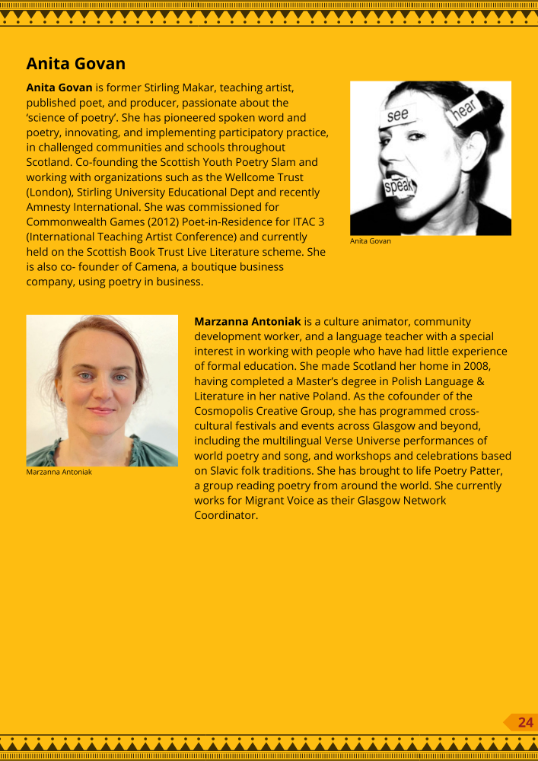
Download the transcript of E57.
Episode 56: Visiting Mi'kma'ki
As part of our research for the Sites Unseen project, two members of the UNESCO-RILA team, Sadie Ryan and Brittnee Leysen, travelled to Mi’kma’ki, the homeland of the indigenous Mi'kmaw people. Mi'kma'ki spans a big geographical area in Eastern Canada, including the area that's also known as Nova Scotia, meaning 'new Scotland'. The Mi'kmaw have been living in the area for at least 11,000 years, and possibly much longer. Most of the Scottish settlers started to arrive about 250 years ago. But it's the name Nova Scotia, not Mi’kma’ki, that you'll usually see on maps.
This Sites Unseen project explores relationships between Scotland’s UNESCO sites and other UNESCO sites elsewhere in the world. This episode explores the relationship between the North West Highlands Global Geopark in Scotland and the Cliffs of Fundy Global Geopark in Canada. We have created a learning pack which uses this episode, alongside a short film, to help learners think more deeply about colonialism, kinship, migration, culture, place-making, language, and identity. It will be launched in the coming months, and will be available for free to all teachers and educators worldwide. To find out more, and to be notified of the launch date, please email unesco-rila@glasgow.ac.uk.
The Confederacy of Mainland Mi’kmaq are currently fundraising to build a cultural centre. You can find out more about the project and donate here. If you can, please give generously.
We’re massively grateful to everyone in Mi'kma'ki who welcomed us and shared their stories with us, and especially to Julie Pellisier-Lush, Iseabail Munro and her daughter Tausha, and Cathy Martin, whose voices you heard in this episode.
Sites Unseen is a project from the team of the UNESCO Chair in Refugee Integration through Languages and the Arts, Professor Alison Phipps.
Download the transcript of E56.
Episode 55: APF Fellow Bertony Louis sur la poésie, Haïti et sa vie à Glasgow
Dans cet épisode, poète et bénéficiare d'une bourse de la fondation Artist Protection Fund Bertony Louis parle avec Prof Charles Forsdick (Université de Liverpool) et Rachel Douglas (Université de Glasgow)de sa poésie, la situation actuelle en Haïti et sa nouvelle vie à Glasgow.
Bertony is a Haitian poet and is a member of our Affiliate Artist Network. In 2019, he published a collection (Book) of poems Mille éclats de mots et autres brillances with Niklovens Fransaint at Lys Bleu Editions (France) and in December 2022 he published the poetry book Recoudre les Horizons at L’Appeau Strophe Editions (France). He is now working on a new collection, parts of which he shares in this episode.
Charles Forsdick
Charles Forsdick is James Barrow Professor of French at the University of Liverpool and Adjunct Professor in Translation Studies, Xi’an Jiaotong-Liverpool University. From 2012 until 2021 he was AHRC Theme Leadership Fellow for 'Translating Cultures'. He has published widely on travel writing, colonial history, postcolonial literature, comics, penal culture and the afterlives of slavery. He is also a specialist on Haiti and the Haitian Revolution, and has written in particular about representations of Toussaint Louverture.
For the full list of Charles' publications and for more information about his research interests, please see his University of Liverpool staff page.
Rachel Douglas
Rachel Douglas is a specialist on Haiti and the Caribbean at the University of Glasgow. She writes about Haitian literature, history, film, and visual art. She is the author of *Making "The Black Jacobins": C. L. R. James and the Drama of History* (Duke University Press, 2019). This study examines the multi-layered classic history of the Haitian Revolution. She is also the author of *Frankétienne and Rewriting: A Work in Progress* (Lexington Books, 2009), the first book to examine the work of Haitian writer-artist Frankétienne in depth. He is famous as the author of the first novel written in Haitian Kreyòl *Dézafi* (1975) and winner of "Le Grand Prix de la Francophonie" 2021.
Episode 54: Music fighting labour exploitation with Isabella Corvino
In this episode, recorded in May 2023 at the UNESCO RILA Spring School: The Arts of Integrating, Isabella Corvino from the University of Perugia analyses the musical integration strategy of the Orchestra dei Braccianti. The orchestra brings together musicians, farmers and workers from all over the world, united by their working situation in the Italian fields.
Isabella Corvino has a PhD in Sociology from the University of Bologna and she is a researcher in Sociology at the University of Perugia. Since 2006, she is a researcher specializing in social relations, recognition, otherness, human mobility, international development and gender studies.
To find out more about the Orchestra dei Braccianti, visit this website (in Italian).
To listen to the full songs, please visit this website.
Listen on Soundcloud
Back to the main page
More about Orchestra dei Braccianti (in Italian)
Listen to the songs
Episode 53: The Sounds of Camas (Outdoor Centre on Mull)
This episode was created by Erdem Avşar:
"Camas is not a place that you go to. But one that you carry with and within you. In a world (the ‘academic’ world, the ‘artistic’ world, the ‘research’ world) where doing is tethered to speed, urgency, and deadlines, Camas in its generosity and magic gently suggests something else.
It is a landscape of work, solidarity, and presence that resists consumerism and that dizzying pace of living. It is a place of collective imagination, repair, restoration, and inspiration. Since my first time in Camas, I have been trying to come up with a different way of carrying Camas with me - and also of gifting its magic to others. I have found it in its sounds.
I have been very lucky to listen to Ralph sighing deeply, Nerea’s seal songs of longing and reunion, the wind blowing, Alison’s dramaturgy of dishes, the footsteps, Tawona’s wonderfully poetic mbira, the contagious laughter filling the room thanks to Esa and Tawona, the bell ringing, dry robe swooshing, all the gorgeous mischief, magic, and music generously shared by the Camas team, and the fire crackling, and crackling, and crackling.
For those who have been in Camas and soaked up its magic, all of this will be familiar. And that is the beauty of it: a familiar generosity that welcomes you and one that you pass on to others.
Here is a mix of ‘Sounds of Camas’ – sounds I recorded in 2022 and 2023. It is not a fancy soundscape. It is simple, imperfect, and windy. But it helps me (and hopefully it will help others as well) to remember, to dream, and to imagine otherwise.
Thanks to the Firepitters, the wonderful Camas team, and all the friends from the UNESCO RILA and GRAMNet who have contributed to the collection. "
*headphones recommended*
If you haven't been to Camas before, we invite you to use the Camas bingo sheet below. Can you recognise the various sounds in the recording?
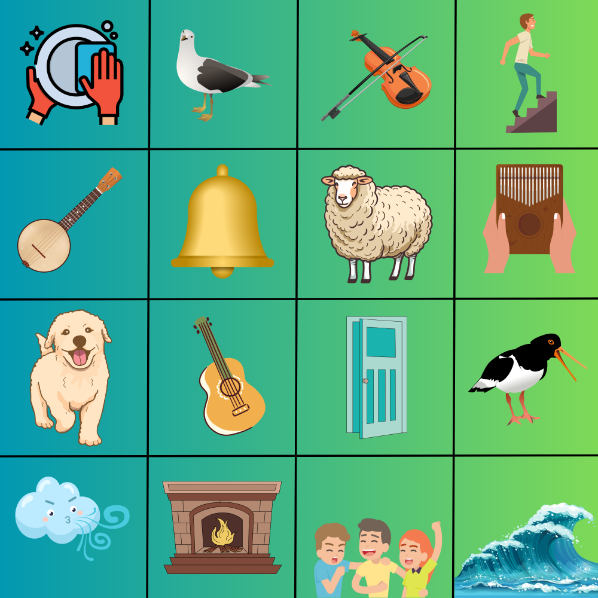
Listen on Soundcloud
Back to the main page
More about Camas Outdoor Centre
Dowload the Camas bingo sheet
Episode 52: Sustaining Support for Intangible Cultural Heritage
In this episode, Dr Hyab Yohannes interviews Prof Shihan de Silva Jayasuriya about her latest edited volume "Sustaining Support for Intangible Cultural Heritage" and in particular her chapter "Safeguarding Afro-Sri Lankan Intangible Cultural Heritage". A conversation about music, language and the Indian Ocean slave trade.
For those interested in buying the book, you can do so here.
Read the transcript of E52.
Professor Shihan de Silva Jayasuriya, PhD, FRAS, is a Senior Research Fellow at the Institute of Commonwealth Studies, University of London. At the University of Cambridge, she is a Senior Associate at Lucy Cavendish College, a Lecturer in the Faculty of History and a dissertation supervisor for Ethnomusicology undergraduates in the Faculty of Music. Shihan is also a supervisor to MPhil/DPhil students in Ethnomusicology and Cultural Studies at the University of Visual and Performing Arts, Colombo. She is also a Collaborative Researcher in the University of Colombo, Department of Sociology. Shihan is the Chair of the ICOMOS Sri Lanka National Committee on Intangible Cultural Heritage. She was also a Visiting Professor in the Faculty of International Relations at the Ritsumeikan University, Kyoto. She served as Rapporteur for the UNESCO Slave Route Project (Paris) and was also a member of its International Scientific Committee. She is an Expert on Afrodescendants in Asia and Advisor to the UN OHCHR (Office of the High Commissioner for Human Rights) in Geneva. Shihan is an elected Fellow of the Royal Asiatic Society of Great Britain and Ireland.
Dr Hyab Yohannes is an early career academic with a PhD in The Realities of Eritrean Refugees in a Carceral Age from the University of Glasgow where he currently works as an academic coordinator for CUSP N+. For more information, please visit his staff profile.
Episode 51: Learning to Belong: Reinterpreting culture through a migrant integration programme
Today’s episode is a recording of a presentation from our Spring School: The Arts of Integrating, which took place in May 2023. We will be hearing from Kirstin Sonne about her research on Maltese integration practices through the "I Belong" programme. Please scroll down for Kirstin's biography.
Download the transcript of E51
Kirstin Sonne has a background in teaching languages, and is currently working for a European network which aims to integrate lifelong learning in higher education. As a researcher at the University of Malta, she is also part of a research project investigating hate speech based on racism and xenophobia in Malta. In 2021, Kirstin graduated from the Erasmus Mundus International Master in Adult Education for Social Change, delivered jointly by the University of Glasgow, the University of Malta, Tallinn University and the Open University of Cyprus. As part of her degree, she undertook research on Malta’s migrant integration programme, “I Belong”, which is what she talks about in this episode.
Questions about this episode? You can connect with Kirstin on Twitter.
10.1080/13621025.2014.905273
More information about the Spring School
Listen on Soundcloud
Back to the main page
To the I Belong programme
Download the transcript of E51
Episode 50: "ህረብረንታ ይስቱማ በልድያ እማ ይኮል ዐርድያ"? (The refugee condition: An existential question)
ይና ፖድካስት (podcast) ገሪ ጋብድ ተላቅስቶ ተርሲቲ። እና ተለያኹ በኒል፡ ጋብ ብሊንድ ህያብ ዮሓንስ ባሰረንታ ሃብታት ዘረእዝጊዲ አሰኹ ቆል ወንቀረዲ አንትሮና ህንበቲ። እን ቆል ወንቀሪል፡ ባሰረንቲ UNESCO RILAትልድ ኣኻኹ ባሰረንታ ሃብታት ጋብዲ ጎልያዲ ኒሰናኽር ህረብርና ኣዋይንዲ ነበርዲት በርበሮ ደገመኩ።
We are making our podcast more multilingual! In this episode, in Blin, you will hear UNESCO RILA Affiliate Artist Habtat Zerezghi's thoughts on language, music and the Refugee Condition, interviewed by Dr Hyab Yohannes.
Habtat Zerezghi is a multitalented artist hailing from Eritrea and currently based in Sweden. With a remarkable ability to sing, write songs, and dance, Habtat is a true creative force in the music industry. His music is primarily in Blin, but he also sings in Tigre, and his compositions reflect his deep passion for language, culture, and the human experience. For more information and for links to his music, please visit his affiliate artist page.
Dr Hyab Yohannes is an early career academic with a PhD in The Realities of Eritrean Refugees in a Carceral Age from the University of Glasgow where he currently works as an academic coordinator for CUSP N+. For more information, please visit his staff profile.
Episode 49: Voices for Change
Migration is discussed a lot in the mainstream media, but the news reports we see are often missing the voices of migrants themselves. The organisation Migrant Voice aims to change that, by supporting migrants to tell their stories, engage with the media, and make their own media content.
Download transcript of E49 here.
In May 2023, Migrant Voice Glasgow Network, led by Marzanna Antoniak, teamed up with Beth Pearson, John McDiarmid, Sean Guthrie, Emma Padner, Noha Al and Sadie Ryan, to run a 2-day intensive Media Lab, where a group of people with migration experience honed their media-making skills and worked together to create two collaborative publications: a magazine, and a podcast episode. This is the podcast episode they made together: it’s called Voices for Change.
This episode was made by six participants in Migrant Voice and Glasgow University’s intensive 2-day Media Lab - Ibrahim, Fatma, Juliette, Ahmad, Annamaria and Grace - with training and support from John McDiarmid from Telt Media, and Sadie Ryan from the UNESCO-RILA team at the University of Glasgow. It also features an interview with Andy Sirel and Maisie Wilson from JustRight Scotland.
This podcast episode fits into a larger research project, ‘Migrants and the Media: Participation and Policy’, developed by Beth Pearson and Sadie Ryan from the University of Glasgow working in partnership with Marzanna Antoniak from the Migrant Voice Glasgow Network, funded by a British Academy Early Career Researcher Network grant, and supported by UNESCO-RILA and the Glasgow Media Group.
Listen on Soundcloud
Back to the main page
Episode 48: Quilting for manifesting anti-colonial futures with Lisa and Mindy
In this episode, we are talking to our colleagues from the School of Education Lisa Bradley and Mindy Ptolemey, about their project Quilting for manifesting anti-colonial futures. Please scroll down for their biographies and for the links to their project.
Download the transcript of E48
Lisa Bradley is a Lecturer in Creative and Interdisciplinary Studies in Education at the University of Glasgow and leads the MSc in Education for Sustainable Futures. Her work focuses on practices of knowledge, reality and meaning-making across disciplines and topics. Guided by post-qualitative, new materialist, and Socio-Technical theories, as well as auto-theoretical encounters that often exceed the academy, she draws on an ever-evolving constellation of performative and transformative methodologies, to prise apart dominant knowledge practices, towards realities unseen, and towards more just and undisciplinary modes of thinking and doing. She is just as at home (re)imagining, (un)learning and restor(y)ing sustainable worlds through quilting, pottery and crochet, connecting the head, the heart, the hand and the other.
Mindy (Amanda) Ptolomey is Lecturer in Sociology at Glasgow Caledonian University. Mindy devises interdisciplinary, creative approaches to explore inequalities in everyday life, and in our imagined futures. Mindy has contributed to Plan UK's State of Girls Rights in the UK report and Scotland in Lockdown, as well as leading the project Researchers Don’t Cry?! Mindy is a member of the Gender and Education Association Executive, and her background is in community development and peacebuilding.
Links:
Lisa's thesis quilt
The quilting project, including an image of the prototype quilt and the registration form.
Lisa and Mindy's Paper Quilt Zine
This Present Moment: Crafting a Better World exhibition
A list of names of people who have been an inspiration for the quilting project:
Bell Hooks
Gees Bend
Faith Ringold
Jess Bailey
Grace Rother
Zak Foster
"Everyday Use" by Alice Walker
Listen on Soundcloud
Back to the main page
Episode 47 - Ignite Theatre: COVID and Conflict
Reposted with permission from the Cultures for Sustainable and Inclusive Peace (CUSP) Podcast. First released on 13 April 2021.
Founder of Ignite Theatre Aileen Ritchie is joined by Lucy Wild, Maya Farzia and Jada McDowell to discuss their work harnessing the arts to help combatting poverty and discrimination in Glasgow, especially navigating the challenges of Covid.
For more information about the CUSP project, please visit the CUSP website.
Episode 46 - Amani Al Mqadma and Azza AlSahhar: Women's Under Siege in Gaza
Reposted with permission from the Culture for Sustainable and Inclusive Peace (CUSP) podcast. First released on 10 March 2021.
Amani Al Mqadma and Azza AlSahhar share stories of women's life under siege in Gaza.
Amani is an electrical engineer and Head of IR at the Islamic University of Gaza and Azza is projects' coordinator for the Islamic University of Gaza.
For more information about the CUSP project, please visit https://www.cuspnetwork.org/.
Episode 45 - Dr. Mary Boatemaa Setrana and Zaza Muchemwa on Women and Peacebuilding
Reposted with permission from the Culture for Sustainable and Inclusive Peace (CUSP) podcast. First released on 8 March 2021.
This inaugural episode of the CUSP podcast, launched for International Women’s Day, looks at the role of Women and Peacebuilding. Episode host UNESCO Chair Professor Alison Phipps is joined by two inspirational guests Dr Mary Boatemaa Setrana (University of Ghana) and Zaza Muchemwa (LitFest Harare).
Mary is a Ghana-based researcher who participates in national, regional and continental migration policy projects. Zaza is a poet, playwright, theatre director and arts manager based in Zimbabwe.
For more information about the CUSP project, please visit www.cuspnetwork.org/
Episode 44 - The Raven's Nest post-recording discussion
This episode is the discussion that happened between Sarah Thomas, Nerea Bello, Piki Diamond and Erdem Avşar after we had finished recording episode 43 about Sarah's Book. Despite me (Bella, the producer of this podcast) waving my hands in the air, the conversation continued and it became such a nice discussion that we've decided to share it with you. Enjoy!
Bonus episode
This is a wee bonus episode as part of our digital advent calendar 2022. On behalf of the whole UNESCO RILA team and friends, we wish you all a very merry Christmas!
Speakers and languages, in order of appearance:
Sadie - Gaelic
Esa - Arabic
Dan - French
Hyab - Blin
Bella - Dutch
Erdem - Turkish
Esa - Italian
Hope - Chinese
Marzanna - Polish
Hyab - Tigrinya
Rolly - Romanian
Alison - German
Tawona - Shona
Nikos - Greek
Dan - Flemish
Brittnee - Maori
Mauricio - Portuguese
Molly - Irish
Rolly - Hungarian
Dan - Spanish
Alasdair - English
Episode 43 - Sarah Thomas' The Raven's Nest
Wondering what to give your loved ones for Christmas? Don't worry, we've got you covered. Another good book recommendation: Sarah Thomas' book The Raven's Nest. It's a book about Iceland, about identity, language, the land we live on/in and how to live during a time of man's destruction of the planet. Fascinating read!
In this episode, Erdem Avşar, Nerea Bello and Piki Diamond talk to Sarah Thomas about her time in Ireland and the writing of the book. Scroll down for their biographies and a glossary of the words and concepts Piki teaches us.
Biographies
Sarah Thomas is a writer and documentary filmmaker with a PhD in Interdisciplinary Studies. She is committed to work that explores our entanglements with the living world. Her films have been screened internationally. She has been a regular contributor to Dark Mountain journal, and her writing has also appeared in the Guardian and the anthology Women On Nature edited by Katharine Norbury. In 2020 she was nominated for the Arts Foundation Environmental Writing Award. She was longlisted for the inaugural Nan Shepherd Prize and shortlisted for the 2021 Fitzcarraldo Essay Prize. Find out more about Sarah and her work on her website.
Erdem Avşar writes and translates plays and poems. His plays have been shown in Scotland and Italy. His poetry has recently appeared in The Book of Bad Betties. He is the 2019 recipient of the Kevin Elyot Award. He is an affiliate artist at UNESCO RILA (see his profile). He is also a PhD researcher at the University of Glasgow working on an interdisciplinary project that explores the queer politics of contemporary theatre-making in Turkey. He is from Istanbul, currently based in Glasgow.
Piki Diamond’s tribal lands are protected by her people of Ngāti Tūwharetoa and Ngāpuhi. She is a Māori academic developer, who received her Doctoral degree from Auckland University of Technology (AUT), co-designer of Ako Aronui (Higher Education Teaching Professional Standards Frameworks), mother, sister, aunty, kuia, raised by the manaaki of Tauranga Moana. Her work is centred around the phrase “honouring the Treaty of Waitangi in practice”. This phrase has been at the heart of her autoethnographical study on the university as she experiences and critiques the university from her indigenous, Māori values and ways of being. Intertwining her experiences as an academic developer with raising her twin daughters, she discovers the powerful relationships of Mother, midwife, and the garden.
Nerea Bello is a Basque performer, jewellery maker and researcher based in Scotland. She moves seamlessly between solo, collaborative and theatre work. Nerea loves unearthing forgotten and discarded sounds and materials for her work and is passionate about exploring old ways of singing; celebrating the sound of raw, unadulterated voices that can fearlessly express vulnerability and emotion. Nerea is currently doing a PHD where she is exploring ways to create spaces shared by all knowledges looking at ways to bring to the fore the wisdom we carry in the body, wisdom that speaks outside the pages.
Glossary
Pepeha – your personal identity defined by your relationship with the land and people.
Whakapapa – genealogy, bloodline
Tauparapara – collective identity, your connection to land through your sacrifice for the land ie fought to protect the land to nurture and nourish the people.
Hokianga – harbour on the west coast in the Northland of Aotearoa New Zealand
Marae – a place cultural anchor for the community
Whānau – family
Being in wānanga – living with absolute faith, being in ‘flow’
Kaupapa – issue or purpose of gathering
Manaaki – hospitality, generosity
Ngāwari – state of easy flow
Waka – canoe
Tangata whenua– indigenous
Māori Rangirua – of two minds, confusion
Whakataukī - proverb or quote with author unknown
Whakatauakī - proverb or quote with known author
Ko āu te awa ko te awa ko āu – I am the river and the river is me
Free to Go with Esa Aldegheri
This time we have a travel book for you! Esa Aldegheri talks to Katherine Mackinnon and Hannah Rose Thomas about her motorbike journey from Scotland to New Zealand and the process of writing the book. The episode ends with a short reading, to give you a sense of her writing style. Please scroll down for their biographies.
If you like the book and want to get it for somebody as a (Christmas) present, you can do so here.
Biographies of the speakers
Esa Aldegheri completed an ESRC-funded PhD at the School of Education, University of Glasgow: a multilingual study of how narrative exchange, including poetry, facilitates the encounter between forced migrant and receiving communities in Scotland and Italy. She is also a poet and a facilitator of creative writing sessions, working with women from Syria as a Lead Reader for Open Book in Edinburgh. She is also a research associate on the New Scots Refugee Integration Deliver Project (2020-22). 'Free to Go', published in July this year, is her first book. If she could fly she would be a swallow moving between her two countries, Italy and Scotland.
Hannah Rose Thomas is a British artist and an UNESCO PhD Scholar at the University of Glasgow. She has previously organised art projects for Syrian refugees in Jordan; Yazidi women who escaped ISIS captivity in Iraqi Kurdistan; Rohingya refugees in Bangladeshi camps and Nigerian women survivors of Boko Haram. Her paintings of displaced women are a testament to their strength and dignity. These have been exhibited at places including the International Peace Institute in New York, UK Houses of Parliament, European Parliament, Scottish Parliament, Buckingham Palace, GCHQ, FCO, Lambeth Palace, Westminster Abbey and The Saatchi Gallery. Her exhibition ‘Tears of Gold’ was featured in the virtual exhibition for the UN’s Official 75th Anniversary, ‘The Future is Unwritten: Artists for Tomorrow.’ Hannah was selected for the Forbes 30 Under 30 2019 Art & Culture; shortlisted for the Women of the Future Award 2020 and selected for Vogue Future Visionaries 2022.
Katherine Mackinnon is a part-time PhD researcher working on an oral history of refugee lives in Scotland from the 1970s to the present day. In the process of recording life experiences, the project also seeks to develop and trial methodologies for undertaking ethical oral history with refugees. Her professional background includes work in refugee integration, prison education and community development. Alongside her PhD, Katherine is also a writer and researcher, who works with groups to read and write poetry, and explore creative ways of documenting everyday life. Please visit www.kmackinnon.org to find more about her work.
Listen on Soundcloud
Back to the main page
Let's talk about access to education for refugees with Arianne Maraj
In this episode we hear from another visiting academic, Arianne Maraj, about her research on access to education for refugees in Quebec. Joining the conversation are Eva Hanna and Sawsan Abdelghany, both doing research in similar areas. Please scroll down for their biographies.
Arianne Maraj immigrated to Canada from the Caribbean as a child. Her academic background includes a B.A. in Cultural Anthropology and World Religions (McMaster University), an M.A. in Administration and Policy Studies in Education, and a Diploma in Education as a certified teacher of French and World Religions from McGill University where she is currently a doctoral student in the Department of Integrated Studies in Education
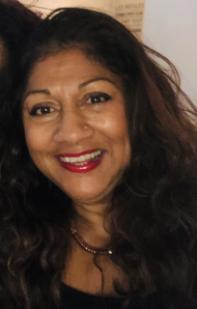
Her thesis focuses on understanding the challenges Syrian refugee young adults face in integrating into adult education schools in Montreal and the support and services necessary to help them achieve academic and lifelong success.
She joined the RILA team as a visiting researcher between 29 August and 2 October 2022.
Sawsan Abdelghany is a postgraduate researcher at the University of Glasgow, and a heritage language tutor. She graduated from the University of Edinburgh with a Masters in TESOL and has worked as an English-Arabic interpreter for asylum seekers and refugees in the Scottish legal system. Her research interests centre around the role of language in helping refugees to integrate.
Eva Hanna is a researcher on language and migration, with an extensive history of language learning and migration. She lives in Edinburgh with her Greek husband, and her Swiss-born Greek/American children. Her PhD focuses on language barriers to higher education for forced migrants, from the point of view of those working in language education, integration, or widening access. As an ethnographer of language policy, she observes/participates in several linked networks working to widen access, provide sanctuary, or include and educate from a social justice approach. As a linguistic anthropologist, she takes a critical eye to language ideologies ‘baked into’ policies and practice, functioning as de facto barriers to inclusion, or creating differential inclusion, in the neoliberal university landscape.
Back to the main page
Listen on Soundcloud
Let's talk about theatre with Zoe Hogan
In this first episode of our new series The sounds of our affiliates, you will hear from Zoe Hogan, Catrin Evans, Pinar Aksu and Effie Samara. All four have done work and research in theatre and are discussing philosophical, ethical and political aspects of their work. Please scroll down to find out more about our speakers.
Zoe Hogan is Director of Education & Community Partnerships at Sydney Theatre Company. She is a playwright and a thinker, who visited the UNESCO RILA team in Glasgow in July 2022.
Dr Catrin Evans is a theatre maker who currently works at the Citizens Theatre in Glasgow as Head of Creative Learning. She has worked extensively for Scotland’s leading theatre companies and is the former Artistic Director of A Moment’s Peace Theatre Company. She has directed and produced for, amongst others, National Theatre of Scotland, Dundee Rep, Grid Iron and A Play, A Pie and A Pint. She is a theatre-maker, producer and academic dedicated to creating innovative and challenging new work rooted in communities. She recently completed a PhD at the University of Glasgow, and before joining the Citizens Theatre was a Research Fellow on the Drawing Together project, with the Institute of Applied Social Research at the University of Bedfordshire.
Pinar Aksu is a second-year PhD student at the University of Glasgow. Her research question explores ‘Art and Law in Migration- using art practices for social change and access to justice’. Pinar is interested in concepts about human rights, using creative methods for change, and access to justice in migration. Pinar also currently works with Maryhill Integration Network as a Human Rights and Advocacy Coordinator, as well as being a theatre maker with Active Inquiry.
Effie Samara is a writer, film maker and doctoral researcher at Glasgow University. She studied Law at Cambridge University and obtained an M.F.A. in Writing from the Royal Central School of Speech and Drama. Her theatre work includes SARTRE, Baby and LESBOS at Tramway, Glasgow. These works are reflective of the spirit of exile, minority rights and refugee integration. They focus on politico-philosophical debate, Human Rights, women’s rights and gender identity in exile. Her academic research under Professor Alison Phipps looks into exilic consciousness and radical reimaginings of citizenship towards a political dramaturgy through culture and creativity. More information about her work can be found on her Affiliate Artist page.
Listen on Soundcloud
Back to the main page
Episode 39: Immersive soundscape - From Alba to Aotearoa
From Alba to Aotearoa: An immersive soundscape with Shanara Wallace and Brittnee Leysen
This episode guides you through the experience of migration through an immersive soundscape: from Alba (Scotland) to Aotearoa (New Zealand). Although emigrants, refugees, and migrants might land far from their native land and people, they retain vivid visual, aural, and olfactory memories of their homes. The once physical landscape thus becomes an imaginary landscape that we carry with us even into the unknown. In this sensory experience, you are invited to relax, close your eyes, and isolate your sense of sound to better connect with your own feelings and thoughts during this exercise. Sounds recorded in the Scottish Highlands and Islands will play to start this journey off: perhaps you will recognise certain bird calls, or the sound of various flora and fauna. Gaelic songs drift on the breeze. The soundscape will transition…to a more bustling cityscape of the lowlands, where many emigrants came to from the Highlands and Islands prior to stepping foot on the docks of Glasgow Harbour and setting sail for new lands. Ocean sounds will commence, at times soothing and calming, other times angry and thunderous. At last, we land in Aotearoa. The bird calls here may be unfamiliar, perhaps the cicadas louder. The language, Māori, reaches us before we hear the words of a waiata, a Māori song, closing out the journey.
This soundscape was first played at the UNESCO RILA Spring School: The Arts of Integrating 2022.
Our journey begins north west of us, on the mainland in Rahoy in Morvern, with a Gaelic performance of Duanagdon Mhorbhairne heard on the wind by Riona NicIlleBhain a native of Morvern. We then move across the sea, to An t-Eilean Sgitheanach, the Isle of Skye, with audio provided of the brooks and waterfalls and birds of the area by Viktoria Marker, a resident of Skye and lecturer at Stabhl Mor Ostaig.
We then make our way south, to Glasgow where local birdsong can be heard before we board our ship bound for Aotearoa.
A long segment of this experience is listening to ceol na mara, the song of the sea. The journey to Aotearoa was long, and the sea not always pleasant. Notice the absence of bird song, the absence of everything but the rolling thunder and wind that seems endless. Some might find this comforting, but others will get incredibly anxious, I know I fall into the later category.
Eventually, we hear the seagulls. We hear the sea washing up on the shore of Hahei beach in the Cormandel peninsula in Aotearoa, captured by Logan Kidd. As we adjust to our new surroundings, cicadas fill our ears and our thoughts, until the sound of the beating poi begins…
E rere rā te motu nei
Parihaka was a pan-tribal pacifist settlement at the base of the mountain of Taranaki along the west coast of the North Island of Aotearoa. It was established by the two prophets, Tohu Kākāhi and Te Whiti o Rongomai and famous for their practice of passive-resistance to the confiscation of Māori land. This waiata poi, E rere rā te motu nei, was composed by descendants of the iwi or tribes of Muaupoko when travelling to Parihaka, pledging their support to the pacifist movement.
On the 5th of November 1881, 1600 Constabulary Field Force troops marched on Parihaka where they found several thousand Māori sat quietly on the marae, as children sang and played and women greeted the force with kai or food. E rere rā te motu nei was one of the waiata that was sung during this time. It speaks of the marae that were established in this settlement, the values upheld, the customs, practices, and hope that the people would continue to hold onto.
Te Whiti o Rongomai, Tohu Kākāhi and many of their male followers were arrested and held without trial for two years in the Otago region, but they left their mark on many cities along the way in the form of the roads and buildings that they built and were contained in during their imprisonment. In 1883 Te Whiti o Rongomai, Tohu Kākāhi and some of the original men who were imprisoned, made a hero’s return home.
This waiata is performed by Shanara Wallace, a descendant of the iwi or tribes of Ngāti Ruanui, Ngā Rauru, Ngāti Tūwharetoa and Ngāti Kahungunu ki Wairarapa and Heretaunga.
In her own words for you gathered at this hui today:
I’m privileged to have been raised under the shelter of kohanga reo and kura aho matua, which are not only Māori language nest and Māori medium schools, but holistic and collective models of raising and nurturing the next generation. It was a living and breathing village that raised me as a child.
Now in life, I’m simply exploring what it means to be a young Māori woman in a largely Pākeha or western society, whilst staying true to my whakapapa, to my descent. As you hear this korero (account), I will be on the road, heading back to our marae, our traditional meeting house/village, back to our Whānau, our family, back to our community, back to the environment that taught me this waiata, the history behind it, and the values and practices of our people. So I’m incredibly grateful to be able to share all these little taonga (prized treasures) with you through this waiata.
E rere kau ana ngā mihi maioha ki a koutou.
Nāku iti nei, tenei manu tūārangi.
My most sincere greetings flow out to you all. Yours humbly, this bird from beyond the horizon.
Listen on Soundcloud
Back to the main page
Episode 38: Alison Phipps on the New Scots Integration Strategy (part 2)
This is part 2 of the Dr Dan Fisher and Dr Hyab Yohannes' interview with Professor Alison Phipps about her experiences as the UNESCO Chair of Refugee Integration through Languages and the Arts. The interview takes place in the context of the winding down of the second New Scots Refugee Integration Strategy (2018-2022) and its soon-to-be-born third iteration. Please see episode 35 for the first half of the interview and the biographies of the speakers.
List of scholars Alison mentions in the podcast:
David Holmgren
Bill Mollison
Giorgio Agamben
Achille Mbembe
Tim Ingold
Glenn Levine
Victor Turner
Arnold van Gennep
Paulo Freire
Bell Hooks
Martha Nussbaum
Thích Nhất Hạnh
Episode 37: The RoundView Sustainability Takeover at the Scottish Crannog Centre With Dr Joanne Tippett (30/08/2022)
This episode was recorded on location at the Scottish Crannog Centre, an iron age museum in Kinross, Central Scotland. This summer, the UNESCO Chair for Refugee Integration through Languages and the Arts ran a two-day Sustainability Takeover at the museum, featuring a range of sustainability-themed workshops and based around Dr Joanne Tippett’s project The RoundView.
The workshop leaders featured in the episode are, in order of appearance:
Joanne Tippett
Becky Underwood
Jason Oliver
Christine Kammerer
Rachel Backshall
Dr Joanne Tippett
Dr Joanne Tippett is a lecturer in Spatial Planning in the School of Environment and Development at the University of Manchester. Joanne began working in the field of community participation in ecological planning in 1993, working with rural communities in Southern Africa. Her ESRC funded research into participatory river basin planning led to the development of a hands-on toolkit for engagement, Ketso. Ketso is now a social business, and the kit has been used in over 75 countries and half the universities in the UK.
Joanne was a finalist in the 2014 Praxis Unico Impact Awards and Ketso was commended by the Royal Town Planning Institute North West for ‘positive contribution to community engagement’ in 2013. She has published in the area of the social implications of building flood resilience from research funded by the EU Seventh Framework Programme. Action research funded by the Sustainable Consumption Institute and 250 staff in Tesco led to the creation of the RoundView Tool for Sustainability. The RoundView provides the conceptual framing for the Carbon Landscape, a £3.2 million, 5-year Heritage Lottery funded project, and Dr. Tippett is leading on the innovative community engagement for this multi-stakeholder project aiming to restore post-industrial landscapes and increase their ecological resilience in the face of climate change. Her work was short-listed for the UK Sustainable Development Commissions Breakthrough Ideas for the 21st Century.
The RoundView
The RoundView is an open framework that helps us imagine and create a sustainable future. The RoundView Guidelines have emerged from Dr. Joanne Tippett’s research at The University of Manchester (funded by the ESRC and Sustainable Consumption Institute), and provide us with a positive vision to inform our decision making. They give us a clear direction to work towards, clarifying the problems of our current direction, or ‘business as usual’. The RoundView uses innovative hands-on tools to communicate environmental ideas in an accessible, easily understandable way. This video briefly introduces the RoundView within the context of the Carbon Landscape Heritage Lottery Funded project currently running in the North West of England.
The Scottish Crannog Centre
The Scottish Crannog Centre is an iron age museum in Kinross, Central Scotland. They aim to be a sector-defining museum: a museum that is democratic, engages diverse people (both those that work alongside each other and those that visit), and a place of activism where leadership runs right through the organisation.
Listen on Soundcloud
Back to the main podcast page
Episode 36: Caroline Lenette on Participatory Action Research: Ethics and Decolonization (16/08/2022)
In this episode, Assoc Prof Caroline Lenette, Dr Gameli Tordzro and Dr Lucy Cathcart-Frödén discuss Caroline's latest book "Participatory Action Research: Ethics and Decolonization". Please scroll down for the full show notes.
Unesco RILA · E36 - Caroline Lenette on Participatory Action Research: Ethics and Decolonization
Download the transcript of E36 (pdf).
You can order the book through this link. Listeners of this podcast get a 30% discount. When ordering, please use the code ASPROMP8.
Chapter 1 of the book is free to access until 2 September 2022 through this link.
Biographies of the speakers:
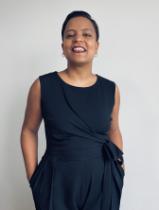
Image: Caroline Lenette
Assoc Prof Caroline Lenette lives and works on the colonised and unceded land of the Bedegal people in so-called Australia. She is Associate Professor in the School of Social Sciences, and Deputy Director of the Big Anxiety Research Centre at the University of New South Wales. Caroline favours participatory research approaches to challenge and decolonise established research norms. She uses arts-based methods to explore psychosocial health and well-being, and research ethics. She is the author of Arts-Based Methods in Refugee Research: Creating Sanctuary (Springer, 2019) and Participatory Action Research: Ethics and Decolonization (Oxford University Press, 2022).
Dr Gameli Tordzro is a Ghanaian multiple arts professional and a Creative Arts (CA) researcher, consultant and lecturer in Glasgow. He is Artist in Residence with UNESCO RILA, and a Research Associate on The MiDEQ Hub. His research is in creative arts and translating cultures, language and education with a focus on African diaspora music, video film production, story and storytelling. For more information including example of his work, please .
Dr Lucy Cathcart-Frödén is a researcher, linguist and community artist, working in text, sound and music. Following a practice-based PhD at the University of Glasgow, she is now based at the University of Malmö, working on an artistic research project called 'Conviviality and Contamination'. She works at the intersection between participatory creative practice, languages and community activism, and she is in the early stages of developing new work on multilingual urban soundscapes.
Listen on Soundcloud
Back to the main podcast page
Episode 35: Alison Phipps on the New Scots Refugee Integration Strategy (part 1) (02/08/2022)
Interviewers Dr Dan Fisher and Dr Hyab Yohannes interview Professor Alison Phipps about her experiences as the UNESCO Chair of Refugee Integration through Languages and the Arts. The interview takes place in the context of the winding down of the second New Scots Refugee Integration Strategy (2018-2022) and its soon-to-be-born third iteration. Please scroll down for more information and for the biographies of the speakers. Part 2 of this interview is episode 38 in the series.
This interview was recorded as part of the New Scots Refugee Integration Delivery project, led by the Scottish Government in partnership with COSLA, the Scottish Refugee Council and the UNESCO Chair at the University of Glasgow. The aim of the project is to promote employability, education, health and social and cultural connections for refugees. For more information about this project, please click here.
Speakers:
Dr Hyab Yohannes is the Academic Coordinator of the Cultures for Sustainable and inclusive Peace Network Plus (CUSP N+) project. His PhD thesis is entitled “The Realities of Eritrean Refugees in a Carceral Age”. Hyab brings unique experience and perspective to migration-related policy development and implementation with a specialism in the subjects of “forced migration”, “(de)coloniality”, and “(b)ordering”. Please visit Hyab’s personal website for his personal story, academic journey, and critical reflections.
Dr Dan Fisher is a Geographer with an interest in borders, asylum law and refugee integration. He is currently working on a project titled "Scotland's 'New Scots' Strategy: Towards an international exemplar of best practice in refugee integration", which has been funded by the Asylum, Migration and Integration Fund (AMIF). Prior to joining the University of Glasgow, Dan was employed at the James Hutton Institute, where he conducted research on the challenges of implementing sustainable (and socially inclusive) Green Infrastructure in the United Kingdom. He has also worked at the University of Exeter, where he researched asylum appeal proceedings in Europe as part of the ASYFAIR project (led by Professor Nick Gill). Dan completed his PhD at the University of Edinburgh. His thesis critically engaged assemblage theory as a means of prising open the everyday workings (and failings) of border control. Ethnographic data from field sites in Spain, Morrocco and the UK were used to trace performances of border control and tactics of resistance.
Prof Alison Phipps holds the UNESCO Chair in Refugee Integration through Languages and the Arts and is Professor of Languages and Intercultural Studies at the University of Glasgow. She was PI of AHRC Large Grant ‘Researching Multilingually at the Borders of Language, the body, law and the state’ (2014-2017). She Co-Directs the GCRF £20M South-South Migration Hub, MIDEQ and is PI of AHRC £2M Cultures for Sustainable and Inclusive Peace Network Plus (2020-2023). She regularly advises public, governmental and third sector bodies on migration, arts and languages policy, and Chairs the Scottish Governments New Scots Committee. She is an academic, activist and published poet. For more information, please .
Episode 34a: Bonus! Aoife is Returning - a journey of exile and return to self and place: Imagining a decolonial vision of home (26/07/2022)
In this bonus episode, Aine McAllister tells us more about her background and the ideas that formed the basis for her keynote poem. For her biography and twitter handle, please see episode 34. For a list of references and a link to another podcast episode she did, please scroll down.
Reference list:
- Bennett, T., (2019), Borderlines, Hedgehog Poetry Press
- Boyle, M., (2022), Strabane, Dublin, Arlen House
- Dhaliwal, S.K., (2021), The Yak Dilemma, London, Makina Books
- Donovan, K. (1996). Poetry and Exile [Review of American Wake; Kings and Bicycles; D-Day, by G. Delanty, G. Donovan, & P. O’Muirí]. The Poetry Ireland Review, No. 48, pp. 96–99.
- Johannes, H (2022), Twitter, 30 May 2022, Available here.
- Kebede, S. S. (2010). The struggle for belonging: forming and reforming identities among 1.5-generation asylum seekers and refugees. Oxford, Refugee Studies Centre.
- Maurizio, L (1995). ‘A reconsideration of the Pythia's role at Delphi: anthropology and spirit possession’, Journal of Hellenic Studies, No 115, pp69-86
- Stonebridge, L (2015). ‘Statelessness and the poetry of the borderline: André Green, W.H. Auden and Yousif M. Qasmiyeh’, Textual Practice, Vol.29, No. 7, pp.1331-1354, DOI: 10.1080/0950236X.2015.1095454
See Aine's institutional profile.
A recent podcast by Aine about how poetry plays a part in reconnecting refugees with education.
Please see the show notes of episode 34 for her biography.
Listen on Soundcloud
Back to the main podcast page
Episode 34: Poetry by our Keynote Poets (19/07/2022)
Today’s episode is a collection of three poems, written by three very talented keynote poets we invited to our Spring School: The Arts of Integrating 2022 – Our Shared Values. The task we set them was simple, yet very difficult: Be with us for one full day of the Spring School, listen to the presentations, discussions, workshops on that day and write a poem about the things you’ve heard. They then performed their poem at the end of each day. Please scroll down for their biographies.
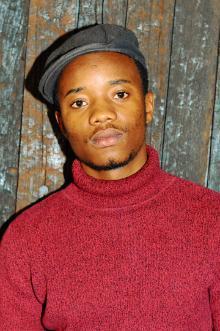
Nyashadzashe Chikumbu is a columnist for The Migrant Online, and a Poet. His poetry is deeply shaped and inspired by language, it’s beauty and possibilities, how the act of owning and clamimg language(s) is an act of freedom, how the power of reimagining language and it’s uses is a portal to other worlds. He is the editor of a forthcoming poetry anthology featuring 50 contemporary African poets from Mukana Press.
His poem is called Six Degrees of Freedom.
Follow Nyashadzashe on Twitter @dzanyashadzashe
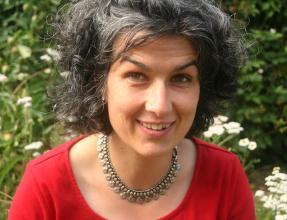
Esa Aldegheri has recently submitted an ESRC-funded PhD at the School of Education, University of Glasgow: a multilingual study of how narrative exchange, including poetry, facilitates the encounter between forced migrant and receiving communities in Scotland and Italy. She is also a poet and a facilitator of creative writing sessions, working with women from Syria as a Lead Reader for Open Book in Edinburgh. Her first book will be published on 7th July: called 'Free to Go', it is the story of a motorbike journey from Scotland to New Zealand; a meditation on freedoms and restrictions; an account of navigating a world which assumes women ride pillion. If she could fly she would be a swallow moving between her two countries, Italy and Scotland.
Her poem is called There’s this thing called Spring School. It’s good. And we do it.
Follow Esa on Twitter @aldeghesa
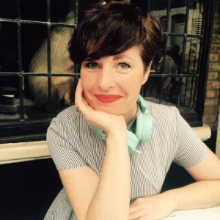
Aine McAllister is a poet from the Glens of Antrim in Northern Ireland, who works as a Lecturer in Language Education at University College London (UCL). She is currently a UCL Public Policy Fellow and through this position seeks to develop engagement pathways with policy makers to reduce barriers to higher education for refugees and asylum seekers. Her work is published in journals and she uses poetry and poetic enquiry in her research. She is interested in exploring how poetry gives voice and using dialogue as a tool for writing and for facilitating writing.
Her poem is called Aoife is Returning
Follow Aine on Twitter @aine_mcallister
Listen on Soundcloud
Back to the main podcast page
Episode 33: Robert McNeil's Grave Faces (04/07/2022)
TW: death, suicide, rape, genocide, PTSD
In this episode, UNESCO RILA Affiliate Artist Robert McNeil gets interviews by Erin Jessee (University of Glasgow) and Rachel Kerr (King's College London) about his book Grave Faces: A Forensic Technician's Story of Gathering Evidence of Genocide in Bosnia. Please note the trigger warning above and maybe choose a different episode to listen to if this is something that you're sensitive to. Full speaker biographies can be found a bit further down this page.
Speaker biographies:
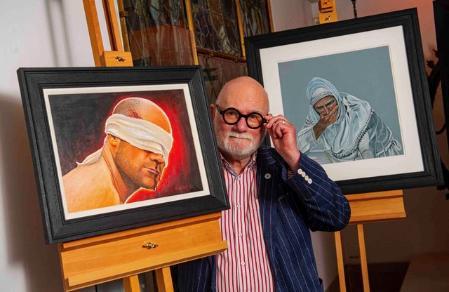
Robert McNeil had a career in pathology in Scotland as an NHS Mortuary Operations Manager. In 1996 he volunteered to travel to Bosnia & Herzegovina on behalf of the International Criminal Tribunal for the Former Yugoslavia, to help gather evidence against suspected perpetrators, indicted of war crimes, crimes against humanity, and genocide. In his capacity as a forensic technician, he gathered evidence from the bodies of victims from hundreds of mass graves, from Srebrenica and other parts of Bosnia and Herzegovina, but also in Croatia and Kosovo. He carried out similar work in Africa, Thailand, Ireland and France.
When he retired, he took up painting as a hobby but felt compelled to depict images from his former career to help him deal with a mild form of PTSD. On realising that both his experiences in forensics, together with his art-work might help people who themselves may have experienced trauma, he started exhibiting his work.
As an ambassador of Remembering Srebrenica UK, he currently delivers educational presentations in various venues including in schools, museums and prisons. He sends the message that no society is invulnerable to prejudice and intolerance and that art as well as being therapeutic, can be a positive way of explaining and recovering from traumatic experiences.
For more information about Robert and his work, please visit https://www.robertmcneil.co.uk/.
Grave Faces will be available in the UK within the next few weeks. To pre-order the book, please visit:
Rachel Kerr is Professor of War and Society, Deputy Head of the Department of War Studies and Vice-Dean (Education) for the Faculty of Social Science & Public Policy at King’s College London. She is a contemporary historian working on transitional and post-conflict justice and memory and international law and war. Rachel joined King’s College London in 2003 as a Lecturer to develop the now long-standing War Studies Online programmes, having previously worked in academic publishing for Polity Press. She holds a BA in International History and Politics from the University of Leeds and an MA and PhD in War Studies from King’s College London.
Erin Jessee is a Senior Lecturer in History at the University of Glasgow with over a decade of experience conducting qualitative fieldwork, particularly in Rwanda, Bosnia-Hercegovina, and Uganda. In addition to her research, Jessee teaches undergraduate and graduate classes on oral history, genocide in the twentieth century, and Rwandan history, and offers workshops on the use of qualitative methods in researching conflict-affected settings, and managing danger in fieldwork. She is a Co-editor-in-chief for the Journal of Perpetrator Research, serves on the Board of Editors for The Oral History Review, and is a series editor for Oxford University Press' Oral History series. She holds a BA (Double Major) in Archaeology and Anthropology, an MA in Archaeology from Simon Fraser University, and an Interdisciplinary Humanities PhD from Concordia University in Canada. For more information about Erin and her work, please visit https://www.gla.ac.uk/schools/humanities/staff/erinjessee/.
Listen on Soundcloud
Back to the main podcast page
Episode 32: Christian Hanser about his Tiny Campus and pop-up hospitalities (20/06/2022)
Welcome to the second episode from the UNESCO RILA Spring School: The Arts of Integrating 2022 - "Our Shared Values", in which Christian Hanser discusses his mobile Tiny Campus and his thinking around pop-up hospitalities. Please scroll down for the abstract, his biography and images of the Tiny Campus.
Abstract:
How can we nurture wider societal welcome from within university networks?
In this audio-visual presentation I will introduce an experimental format of pop-up conferencing proposed as a way to connect small local groups of early career researchers with locations that are rarely inhabited by scientific communities. Encounters are organised around the outdoor venue of a ‘tiny house’ campus on wheels wandering across borders in Europe as a deliberately vagabond educational setting dancing around the frictions of intellectual territorialisation (Lugosi, 2016). Discussions then take place by alternating sites on institutional grounds with open public spaces in order to invite into multisensory, experiential, publicly accessible forms of dialogue which allow to mix different publics. The aim of this introductory video is to share some of the values that have led to the creation of this small-scale format. Academic settings can be understood as a “plastic material already shaped into one thing and capable of being reshaped into another” (Shor and Freire, 1987, p.28). We will look at the plasticity of encounter spaces whose artistic potential can help transform institutional pressures into collaborative and civic acts of welcome beyond the academy.
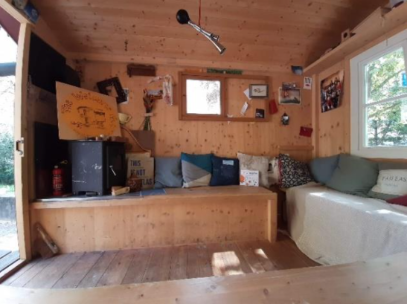
Image: The inside of Christian Hanser's Tiny Campus
What is the relevance of academic hospitality for the continuity of welcome?
Presenting this concrete format for alternative academic events is also an invitation to discuss the concept of academic hospitality (Phipps and Barnett, 2007) as an applied framework that can provide continuity. Hospitality in many European scientific career options is conditionally framed around short-termism. To what extent could an initiative emanating from the exclusive and at the same time highly precarious “bubble” of early career academia dwell in civic and non-academic spheres without occupying them with the growth-oriented expansionism and temporal pressures that characterise contemporary universities? Based on the first experiences that have led to the creation of the Tiny Campus between Strasbourg (France) and Freiburg (Germany) since 2020, it will be asked how a Tiny Campus tour between Scotland and Ireland (possibly in 2023) can bring together local participants alongside researchers, artists, activists to nurture cultures of pop-up hospitality beyond walls.
The first Tiny Campus pop-up event was organised by Michelle Thompson at the University of Freiburg (Germany) and more information about the idea can be found here: www.tinycampusontour.eu
Biography:
Christian Hanser is a PhD student at Moray House, University of Edinburgh. Through an arts-based methodology he investigates vagabond educating, existential detours and indirect pedagogies as contributions to the de-optimisation of educational systems. His research experiments with 'no-agenda' resting spaces and facilitates itinerant processes for de-walling institutional spheres to move away from benchmarking and ableism (in and of academia) and instead create hospitality hubs.
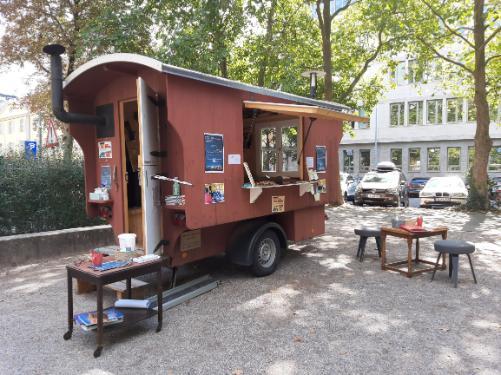
Image: Christian Hanser's Tiny Campus
Listen on Soundcloud
Back to the main podcast page
Episode 31: Saskia the Wildt explores Polar Bear Research as Ethical Space, Practice and Process of Engagement (07/06/2022)
This episode was recorded during the UNESCO RILA Spring School: The Arts of Integrating 2022 - "Our Shared Values". It is a guided workshop that is best done in pairs or small groups. In the first half, Saskia de Wildt explores ways to navigate conflicting values and ethics, before leading us on an exploration of our own in the second half. Tools needed: pen and paper. For the full show notes, please keep scrolling.
Unesco RILA · E31 Exploring Polar Bear Research as Ethical Space, Practice and Process of Engagement
This presentation and workshop was created by Saskia de Wildt (Queen's University, Canada) and Leonard Netser (Coral Harbour, Nunavut) and is presented by Saskia de Wildt.
Introduction by Tawona Sitholé
Other speakers: Dan Fisher and Mel Engman
Abstract:
In Nunavut, polar bears are co-managed by federal and Inuit governing bodies. Following the Nunavut Land Claims Agreement, it is mandatory to incorporate Inuit knowledge and values in wildlife management and research. However, the ideal of knowledge integration within wildlife conservation research and co-management, too often translates to a practice of box-ticking or knowledge appropriation - despite many research proposals stating intensions to do otherwise.
There is a rich body of knowledge from Indigenous and critical scholars on how to relate, in an ethical manner, different ways of knowing the world. Their approaches often allow for both demarcation of sacred spaces for knowledges that are irreconcilable with western ways of knowing, as well as for exploration of how we can bring together differentiated knowledge(s) on the bases of ethical relationships and mutually agreed upon rules of engagement (see Ermine, 2007).
In this episode, Saskia will elaborate on the collaborate efforts she and Leonard are working on to turn polar bear research into an ethical space, process and practice of engagement.
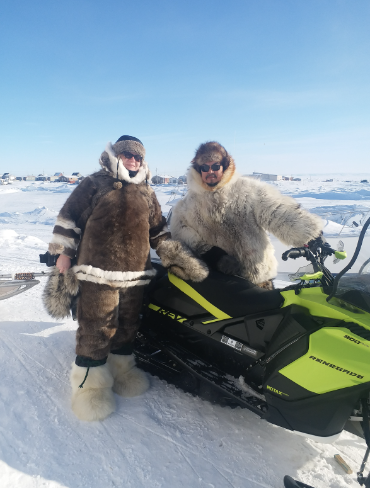
Saskia de Wildt is a creator/researcher. She is currently a PhD Vanier Scholar at Queen’s University, Canada, but has her roots in the Netherlands. Her work transcends boundaries and binaries, but always gravitates close to decolonial theory, sensory ethnography and art. She is interested in applying art-direction, performance art and critical theory towards sustainable development and conservation challenges. To find out more about Saskia, please visit her website www.gingertheworld.com.
Leonard Netser is a hunter and an artist, based in Coral Harbour. As he has grown up and has always lived on the land of Southampton Island, he doesn’t only know the land intimately, he is also well connected to multiple hamlets and individuals on the Island and beyond. He speaks fluent Inuktitut in multiple dialects which made it possible to receive mentorship and advice from community elders.
Leonard has previously collaborated with the BearWatch team as a principle investigator in Coral Harbour for the Crown-Indigenous Relations and Northern Affairs Canada (CIRNAC) Indigenous Community-Based Climate Monitoring Program grant, titled; “Nunavummiut Polar Bear Surveys on Southampton Island: Toward Nunavummiut-inclusive Polar Bear Monitoring and Arctic Climate Change Impact Assessment’’.
His culture doesn’t believe in boasting achievements, but rather in telling stories. In his own words his expertise therefore lies all around the Tundra. His skills however, are applicable far beyond.
The music in this episode is from Uppbeat https://uppbeat.io/t/zimpzon/calm License code: KA9TXLHOS09RQY8Q
Listen on Soundcloud
Back to the main podcast page
Episode 30: Poetry with Sawsan Al-Areeqe (10/05/2022)
Listen to UNESCO RILA Affiliate Artist Sawsan Al-Areeqe reading out three of her poems in Arabic and English. Scroll down for her biography.
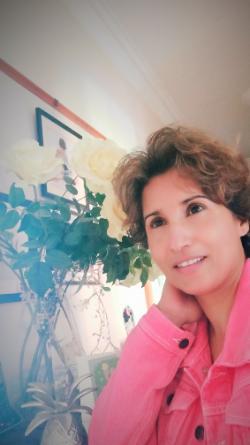
Sawsan Al-Areeqe is a poet and filmmaker from Yemen. She is the author of four poetry collections. The Square of Pain was the subject of a documentary film as a graduation project (Sana’a 2004). More Than Necessary received the Literature Award from Lebanon (2007). What if My Blood Turned into Chocolate won the Creative Award in Sana’a (2011). Her fourth collection, Expired Death, was written during her APF Fellowship in Glasgow University (2018|2019). Previously, Sawsan held a writer’s residence position in the USA, following an invitation from Iowa University’s International Writing Program (2013). She is the winner of the British Council’s 2010 Zoom Film Contest for her short Prohibited, the (Special Jury Prize) at the 2012 Meknes International Film Festival, (The Best Idea) at the 2014 Teba Short Films Festival in Egypt, (The Main Theme) at 2018 in Italy and (Award of Merit) at 2018 in Canada for her short Photo. Participated in her short Daughter of the Sea at the 2011 Liverpool Arabic Film Festival. Sawsan was selected to participate as a member in the committee of arbitration in the Arab Short Films Festival in Morocco 2013. Recently, she was chosen with the selection team for the International Spot Shot Films Festival 2021.
Listen on Soundcloud
Back to the main podcast page
Episode 29: Jason Oliver on binary structures and the post-covid society (26/04/2022)
Jason Oliver from the Scottish Crannog centre gives us ideas for how we can live together in the post-pandemic world.
Jason Oliver is a neurodivergent artist and experimental archaeologist. He is a Royal College of Art graduate and now works at The Scottish Crannog Centre where he focuses on prehistoric textiles – making, understanding and storytelling about the people who lived on Loch Tay 2,500 years ago. He is also the founder of You’re On Mute, an artist collective funded by Future’s Venture Radical Arts Fund, that connects marginalised artists across the Highlands and Islands of Scotland.
The Scottish Crannog Centre is a Museum situated on the banks of Loch Tay. The team at the Crannog Centre interpret the lives of Crannog Dwellers who lived on the Loch 2,500 years ago through guided tours, a museum holding the artefacts left behind and showcasing the many skills and technologies of the past with hands on demonstrations. They are looking for volunteers at the moment. For more information, please visit https://crannog.co.uk/.
Listen on Soundcloud
Back to the main podcast page
Episode 28: Collaborative Keynote Listener Poem 2021 (12/04/2022)
In this final episode of our series Sounds of the Spring School 2021, UNESCO RILA Artist in Residence Tawona Sitholé reads out the keynote listener poem, created by participants of the UNESCO RILA Spring School: The Arts of Integrating 2021.
Click here to download the Collaborative keynote listener poem 2021
Listen on Soundcloud
Back to the main podcast page
Episode 27: A Settler View from Ongoing Colonized Lands (08/03/2022)
Welcome to a new episode in the series The Sounds of Unsettled Objects. In this episode you will hear Laura Phillips' presentation A Settler View from Ongoing Colonized Lands, presented at the Unsettled Objects: post-colonial perceptions of belonging, exile and home global forum on 28 September 2021. For the full programme, please click here. For the best experience, also view Laura's slides on our Slideshare page.
Listen on Soundcloud
Back to the main podcast page
Episode 26: Language in a Globalised World with Khawla Badwan (01/02/2022)
Welcome to the third episode of our series The Sounds of Good Books. Interviewer Dr Maria Grazia Imperiale is talking to Kwahla Badwan about her latest book Language in a Globalised World. Scroll down for their biographies.
Dr Khawla Badwan is Senior Lecturer in TESOL and Applied Linguistics at Manchester Metropolitan University. She is the author of Language in a Globalised World: Social Justice Perspectives on Mobility and Contact (2021), published by Palgrave. Her work includes an interest in language education, social justice, sociolinguistics of mobility, new materialist approaches to intercultural communication, and literacy debates.
Dr Maria Grazia Imperiale is a Lecturer in Adult Education (School of Education, University of Glasgow). Her work focuses on language and intercultural education with refugees and adult migrants. She has conducted research in several ODA contexts, e.g. Ethiopia, Lebanon and Palestine.
Listen on Soundcloud
Back to the main podcast page
Episode 25: The Invention of Multilingualism with David Gramling (part 2) (17/01/2022)
In this second episode of our series The Sounds of Good Books, Alison Phipps, Charles Forsdick and Tawona Sitholé continue their conversation with Prof David Gramling from the University of British Columbia, about his latest book The Invention of Multilingualism.
For the full show notes, please see episode 23 of this podcast.
Listen on Soundcloud
Back to the main podcast page
Episode 24: Sensation of Blackness (21/12/2021)
This episode is a condensed version of a discussion we organised for Black History Month 2021, entitled Sensation of Blackness. Please scroll down for a full list of all the speakers.
In this episode you will hear, in order of appearance, the voices and comments of:
- UNESCO RILA Artist in Residence, poet, playwright, mbira musician, educator and facilitator
Bella Matambanadze - black African feminist activist and writer
Ropafadzo Zinyuke - writer and poet
ShaNon Bobinger - media presenter and systemic life and business coach
Emmanuel Zinyuke - member of the audience
PJ Samuels - poet, spoken word artiste, educator, and LGBTI human rights activist
Pauline Brown - Equality activist, psychotherapist and historian, Glasgow
- UNESCO RILA Artist in Residence
Nyakel Youdid - member of the audience
- UNESCO Chair in Refugee Integration through Languages and the Arts
Biographies of the invited speakers:
Bella Matambanadzo
Bella Matambanadzo is a black African feminist activist and writer from Zimbabwe who has been published in #New Daughters of Africa (Ed Margaret Busby) Writing Mystery and Mayhem (Ed Irene Staunton) the southern African feminist review SAFERE (Ed Patrica McFadden) and African Sexualities (Ed Sylvia Tamale) and elsewhere.
Ropafadzo Zinyuke
Ropafadzo Zinyuke is a Zimbabwean studying Environmental Studies in Canada. She is an upcoming writer, whose first publication in 2016 was very well received. It received second prize in a national competition in Zimbabwe. She has since published a number of short stories and poems online, which she intends to compile into a book.
Her publications:
Power and Greed
Behold your king of fools
Voices within the silence
Instagram: Minx_Shy_Freak
ShaNon Bobinger
ShaNon Bobinger is a media presenter and systemic life and business coach. After many years of presenting for channels such as Tide TV and ALEX TV, as well as The Muay Thai Diary and producing her own interview formats @sippingrealiteas, the focus of her presenting is on social change, with the aim of using inclusive, multi-perspective and diverse communication to promote interactive dialogue and exchange. Her work as a life coach follows a systemic approach, focussing on personal development in an intercultural context.
Listen on Soundcloud
Back to the main podcast page
Episode 23: The Invention of Multilingualism with David Gramling (part 1) (07/12/2021)
This episode is the first in our new series The sounds of good books. Tawona Sitholé, Charles Forsdick and Alison Phipps are interviewing Prof David Gramling from the University of British Columbia about his latest book The Invention of Multilingualism. Please scroll down for more information about the book and the speakers.
Download the transcript of E23
The Invention of Multilingualism
Multilingualism is a capacious idea about human meaning-making practice, one with a promising, tumultuous, and flawed present - and a future worth caring for in research and public life. In this book, David Gramling presents new insights into the subject of multilingualism, describing its powerful social, economic and political discourses. On one hand, it is under acute pressure to bear the demands of new global supply-chains, profit margins, and supranational unions, and on the other it is under pressure to make way for what some consider to be better descriptors of linguistic practice, such as translanguaging. The book shows how multilingualism is usefully able to encompass complex, divergent, and sometimes opposing experiences and ideas, in a wide array of planetary contexts - fictitious and real, political and social, North and South, colonial and decolonial, individual and collective, oppressive and liberatory, embodied and prosthetic, present and past.
David Gramling
David Gramling is Professor of German Studies and Head of the Department of Central, Eastern, and Northern European Studies at the University of British Columbia, Canada. He has published six books, all of which are worth adding to your Christmas reading list:
- The Invention of Multilingualism (Cambridge University Press, 2021)
- The Invention of Monolingualism (Bloomsbury 2016, American Association for Applied Linguistics Book Award, 2018)
- co-author of Palliative Care Conversations: Clinical and Applied Linguistic Perspectives (De Gruyter 2019, with Robert Gramling)
- Linguistic Disobedience: Restoring Power to Civic Language (Palgrave 2019, with Yuliya Komska and Michelle Moyd)
- Germany in Transit: Nation and Migration 1955–2005 (University of California Press 2007 with Deniz Göktürk and Anton Kaes)
- Transit Deutschland: Debatten zu Nation und Migration (Konstanz University Press / Wallstein Verlag, with Deniz Göktüurk, Anton Kaes, and Andreas Langenohl).
For more information about David and his work, please see his UBC staff profile.
Charles Forsdick
Charles Forsdick is James Barrow Professor of French at the University of Liverpool and Adjunct Professor in Translation Studies, Xi’an Jiaotong-Liverpool University. From 2012 until 2021 he was AHRC Theme Leadership Fellow for 'Translating Cultures'. He has published widely on travel writing, colonial history, postcolonial literature, comics, penal culture and the afterlives of slavery. He is also a specialist on Haiti and the Haitian Revolution, and has written in particular about representations of Toussaint Louverture.
For the full list of Charles' publications and for more information about his research interests, please see his University of Liverpool staff page.
Tawona Sitholé
is Artist in Residence with the UNESCO RILA team, as well as Research Associate with the Migration for Development and Equality project and Poet in Residence for .
Alison Phipps
Prof Alison Phipps holds the UNESCO Chair in Refugee Integration through Languages and the Arts and does too many other things to list here, so please visit her for more information about her research and her publications.
List of books that get mentioned:
Anjali Pandey – Monolingualism and Linguistic Exhibitionism in Fiction
David Gramling – The Invention on Monolingualism
Deborah Cameron - Verbal hygiene
Rebecca Solnit – Hope in the Dark
Glossary
fogelfrei (German) – free, cast out, expelled
gandanga (Shona) – the one we fear because they spend a lot of time in the sango
kukwenya (Shona) – scratching (to wake somebody up)
sango (Shona) – the forest
Episode 22: Caring and Sharing (23/11/2021)
This episode is the second in our series Sounds of Unsettled Objects, a collection of episodes created from presentations at the global forum Unsettled Objects: post-colonial perceptions of belonging, exile and home, which took place on 28-30 September 2021, in collaboration with Glasgow Museums. The discussion you will hear is a condensed version of the discussion between Neil Curtis and Eve Haddow. For full speaker details, please scroll down.
Speakers in order of appearance:
Patricia Allan - Curator of World Cultures at Glasgow Museums
Neil Curtis - Head of Museums and Special Collections at the University of Aberdeen
Eve Haddow - Research Assistant in archaeology, collections and Australian South Sea Islander lived identities at the University of Sydney
Mark Hall - Collections Officer at Perth Museums & Art Gallery
To find out more about the Unsettled Objects forum, please take a look at the full programme.
Listen on Soundcloud
Back to the main podcast page
Episode 21: Unsettled Objects opening discussion (09/11/2021)
This episode is the first in our new series Sounds of Unsettled Objects, which is a collection of episodes created from presentations at the global forum Unsettled Objects: post-colonial perceptions of belonging, exile and home, which took place on 28-30 September 2021, in collaboration with Glasgow Museums. In this episode we have tried to capture some of the thinking that came out of the Opening Ceremony on 28 September 2021.
The speakers that feature in this episode are, in order of appearance:
Edugie Clare Robertson, UNESCO RILA Affiliate Artist, with her song Mandela. You can listen to the full song in episode 8 of this podcast.
Alison Phipps, UNESCO Chair in Refugee Integration through languages and the Arts
Patricia Allan - Curator of World Cultures at Glasgow Museums
- Artist in Residence at UNESCO RILA
- UNESCO RILA Affiliate Artist and Research Assistant on MIDEQ
- Artist in Residence at UNESCO RILA
Stuart Taylor - Artist, Consultant, Therapise, Aikido Sensei, Decolonial Cartographer and Pollinator for Social Innovation
Christine Alford - Writer and Researcher
Harriet Parry - University of Brighton
Ahadi Lugo - Co-Founder of Mijikenda Heritage Trust & a member of the Vigango resting place project
To find out more about the Unsettled Objects forum, please take a look at the full programme.
Listen on Soundcloud
Back to the main podcast page
Episode 20: By the fire at The Scottish Crannog Centre part 2 (26/10/2021)
In this second episode, recorded over the weekend of 9-10 October 2021 at the Scottish Crannog Centre’s Celtic Autumn Story Weaving Weekend as part of the Scottish International Storytelling Festival, you will hear more songs and stories. Scroll down for the full list of voices from this episode.
After the introduction by and , you will hear:
with a song called Bonwire Kente. The song was composed and sang by a renowned Ghananian Composer, the late Dr. Ephram Amu. It was composed and sang in Twi, one of the Akan dialects in Ghana. It is an educational piece of music that is used to teach people about Kente weaving and it can also be sang as a recreation song.
Christine Kammerer with lullaby she wrote in 2021 as a gift to her friend's newborn baby. It is called “Eversong”.
Rena Gertz with a Gaelic song is called 'A phiuthrag 's a phiuthar' - Oh sister, my sister. A young woman has been abducted by the faeries and taken underground into a sithean, a fairy hill. She's calling out to her sister to rescue her. It's a very old song and this version probably comes from Barra as it mentions Heaval, the highest hill on Barra. The German song is called 'Es war einmal ein Fischer' - Once upon a time there was a fisherman. His daughter is blind and every night she goes to the seashore to sing to the wind and the waves. One day a stranger arrives, his hand cold and pale, he asks her to be his love and takes her with him deep into the ocean, into his kingdom. Her final words to her father are, 'please don't cry. On earth it was so dark, here there is eternal light'.
You will hear from Dr Gameli Tordzro with an Anlɔ Eʋe Afa divination folklore story from Ghana about gratitude and friendship, called "Nu Nɔamesi Gake Wonaanu Ame Woxɔnɛ. He ends with a song in Eʋegbe that summarises the story.
Another song by Christine Kammerer called Savage Daughter. It is a song by Karen L. Unrein (Kahan, written in 1990) and Christine has become very fond of it, because it has such defiance and empowerment embedded in the words and the melody. She loves to share it with others and see the light of empowerment and connection shining in their eyes as well.
For more information about these fantastic singers and storytellers and for the links to the Scottish Crannog Centre, please see the previous episode.
Listen on Soundcloud
Back to the main podcast page
Episode 19: By the fire at The Scottish Crannog Centre part 1 (18/10/2021)
This podcast episode was recorded over the weekend of 9-10 October 2021, at the Scottish Crannog Centre in Kenmore. They hosted their Celtic Autumn Story Weaving Weekend as part of the Scottish International Storytelling Festival and the UNESCO RILA team was invited to contribute and participate. Naturally we had to capture some of the fantastic songs and stories that were being shared by the Loch around a crackling fire.
The Scottish Crannog Centre is a replica Iron Age village, but walking around the wooden structures, it becomes clear that this is more than the past. This is a potential future, created from a shared point in history. Their ethics of social justice, care and respect for each other, for nature and for the arts are reflected in everything they do. This is a community of sharing: sharing songs, stories and apple crumble made in a cast iron pan over an open fire.
Members of the Crannog team you will hear from in this episode are:
Graham Liney, the resident storyteller and host extraordinaire.
William Kent aka The Blind Bard, an apprentice at the Crannog centre. Will plays the lyre and writes poems and stories.
Isobelle Hanby, a singer from Yorkshire, now based on Loch Tay and also an apprentice at the Crannog. She is using her time in Scotland to learn Scottish folk songs, even one in Doric!
Sadly, earlier this year, the replica crannog in Loch Tay burned down. The good news is that the Crannog Centre have managed to buy a bit of land on the other side of the loch and will start moving the centre across next year. The plan is to rebuild the crannog (or two or three) and to have an even bigger display of archaeological finds and accompanying programme of events in future. If you would like to help fund the rebuild, you can make a donation on their Just Giving page.
For this particular weekend in October, the Crannog team had invited a host of talented artists, two of which also feature in this podcast: Christine Kammerer and Rena Gertz.
Christine Kammerer is a Danish singer, lyre player and composer and Master of Arts in Musicology and Cultural Studies, who is mostly known for her work with prehistoric music and performing of musical cultural heritage in her band Gjaldulei.
As the main composer of the band, Christine Kammerer studies ancient musical structures and searches through the sagas and the cultural history of the Viking Age, to create new compositions. Composing on her lyre (a replica of the one found in the Sutton Hoo excavation) she marries prehistoric soundscapes, with Nordic and Celtic folk tonalities. Her approach to composing is experimental, and has roots in music archeology, music history, cultural history and the sagas.
Her performances, as both a solo singer and with her bands, are characterised by the theatricality of musical theatre and the storytelling characteristics of the bard. She will always weave stories and facts about the history and culture of the Vikings, of the music and instruments of their time, and Nordic folklore in between her songs.
Christine does a lot of international collaborations. At the moment she is working with HC Mobech (DK) and Kjell Braaten (NO) on a composition, which is based on research on Nordic Animism by PhD. Rune Hjarnø Rasmussen. The composition is based on the symbolism of the raven, and its occurance in cultures across the globe. Through music and video we wish to convey the potential of the raven as a cross-cultural symbol of unity between people from all backgrounds and cultures, and a symbol of man's connectivity to nature.
Over the past 5 years Christine has been on radio shows in Denmark, UK, USA and the Netherlands, playing her songs and talking about her music. Especially about her work with pre-historic music. With her band Gjaldulei she performed for Her Majesty Queen Margrethe II, at the opening of the exhibition “Togtet” at the National Museum of Denmark and she recently performed at the Scottish International Storytelling Festival (2021).
In 2021 her song “Eversong” was among the finalists in World Songwriting Awards.
Besides working with folk music, she has also worked with creating awareness about mental illness and trauma through music. She did so on her EP "Growing Pains" (2020)
Links:
Christine Kammerer Music - www.ckammerer-music.com
Facebook | BandCamp
Gjaldulei
Listen on Bandcamp
Follow on Facebook | Instagram
Rena Gertz came to Scotland in 1996 to do postgraduate work in law. Writing her dissertation during the summer, she was looking for something to do during the evenings and discovered that Aberdeen Gaelic Choir was rehearsing on Tuesday nights. Curious, she went along and, as they say, the rest is history. She fell in love with the beautiful music and learned the language. Since then, she has been taught songs by some of the great singers and tradition bearers in the Gaelic world and has built a repertoire of a variety songs over the years. Singing in various languages has become one of her greatest joys and she loves sharing her songs and their stories with an audience. She now sings in Scots, English, Gaelic and Italian – languages she also speaks – in addition to songs in her native German language. She particularly loves to focus on the background and history behind the songs. She has been performing solo and with an Irish band that sadly has since stopped playing together.
For a number of years, Rena has been performing with a Sgioba Luaidh, a tweed waulking group, in paces like the museum village in Auchindrain and at the Jacobite Day at Beinnglas. She has learned most of her waulking songs from Rona Lightfoot, whose mother Kate MacDonald (Bean Eardsisdh Raghnaill) had over 260 working songs recorded for the School of Scottish Studies.
In 2013, she won the Learners’ Traditional Singing Competition at the National Mod, the first non-UK person to have that honour. So far, she has recorded songs for a compilation CD and hopes to record her own album with an eclectic mix of songs and languages.
For over 4 years, Rena has been supporting the Scottish Crannog Centre as a volunteer, first as a Gaelic singer only, now also as a guide, introducing visitors to food and cooking in the Iron Age. In October 2021, Rena performed a weaving song at the International Storytelling Festival in the Crannog Centre and sang other songs in Gaelic and German.
Rena is keen to pass on the wonderful tradition of Gaelic working songs and offers workshops learning waulking songs, which will culminate in the participants sitting at a table experiencing a ‘luadh’, waulking a piece of cloth and singing the old songs.
Members of our own team who were involved are , and .
Speakers in order of appearance:
Dr Gameli Tordzro – UNESCO RILA team
Prof Alison Phipps – UNESCO RILA team
Isobelle Hanby – Scottish Crannog Centre
William Kent – Scottish Crannog Centre
Rena Gertz – Singer and volunteer at the Scottish Crannog Centre
Christine Kammerer – Singer and composer
Graham Liney – Scottish Crannog Centre
Dr Gameli Tordzro – UNESCO RILA team
Naa Densua Tordzro – UNESCO RILA team
Prof Alison Phipps – UNESCO RILA team
Dr Gameli Tordzro – UNESCO RILA team
Listen on Soundcloud
Back to the main podcast page
Episode 18: World Words (28/09/2021)
Episode 9 of series "The Sounds of the Spring School 2021".
In this episode you will hear a five words and the stories behind them, collected for the workshop World Words by Marzanna Antoniak. The workshop took place on 27 May 2021 at the UNESCO RILA Spring School: The Art of Integration 2021.
More details about the World Words project and a space to submit your story: www.tinyurl.com/WorldWords
Mary McCabe lives in Glasgow. Her books include: fiction Everwinding Times and Two Closes and a Referendum, non-fiction Streets Schemes and Stages and faction Stirring the Dust. A children’s book and several radio plays have appeared in German translation. Dozens of her poems and stories in Scots, English and Gaelic have been anthologised. Politically active, she is a member of PEN International. www.marymccabe.scot
John Cavanagh is a voiceover artist, radio presenter, writer, record producer, creator of music, events, and occasional operator of a record label. Before all of those things happened, John’s interest in mechanical music led him from searching for machines and records to being in the antique trade in his teens and it’s from this time that John’s chosen a story to share for World Words. www.johncavanagh.co.uk/
Abdelrahman Mohammed is an Arabic language teacher for non-native speakers. He has worked in schools in Dubai and Cairo, and now teaches on Italki www.italki.com/teacher/1323149, originally from Cairo, Egypt, he is based in Russia. He loves reading and writing poetry in Arabic and enjoys cooking cooking Egyptian and Mediterranean meals, this includes kofta on which he based his World Word story.
Maria Marchidanu is a Scottish Literature PhD scholar at Glasgow University. In 2017, she was the editor and project coordinator of the literary anthology 'You Don't Look British'. Contact: maria_marchidanu@yahoo.com. Anna Bogodist is a theatre director and producer based in Russia. She loves water and adores Scotland. She chose to share the word ‘Skye’.
John Cavanagh - Anglosaxon - Gepungen
Mary McCabe - Scots Gaelic - Maide-Crochaidh
Maria Marchidanu - Arabic - banat - بنات
AbdelRahman Mohammed - Arabic/Russian - kofta - кофта - كفتة
Anna Bogodist - Scottish - Skye
Listen on Soundcloud
Back to the main podcast page
Episode 17: Dar to Dunoon - a closer look (13/09/2021)
Episode 8 of series "The Sounds of the Spring School 2021".
Tawona Sitholé, Kate Cowcher, Madeleine Conn, Elikem Logan and Meredith Loper discuss a two year research project to document twelve works of modern art from East and Southern Africa from the Argyll Collection. The efforts to track down their makers and trace the artefacts journeys from the African continent to Argyll.
Resources and further information:
- http://dartodunoon.com/
- https://www.argyll-bute.gov.uk/argyllcollection/research
- https://artuk.org/discover/artworks/untitled-164015/search/venue:the-argyll-collection-6575/view_as/grid/page/3
- https://artuk.org/discover/stories/modern-african-art-from-dar-es-salaam-to-dunoon
- https://artuk.org/discover/artworks/sangomas-309918
Listen on Soundcloud
Back to the main podcast page
Episode 16: Artists on Conflict (30/08/2021)
Episode 7 of series "The Sounds of the Spring School 2021".
CONTENT ADVISORY - This recording contains discussion of war, genocide and war crimes which some listeners may find upsetting.
UNESCO RILA Affiliate Artists Robert McNeil MBE and I.D. Campbell, describe and reflect on their artwork which remembers the atrocities of Srebrenica and the Bosnian war. The discuss the power of art as a means to express, process, mediate and communicate the most extreme of experiences.
Robert McNeil
Iain (I.D.) Campbell
Media coverage: Kelvingrove Museum exhibition shines a light on Srebrenica atrocity
Episode 15: Poetry from the Spring School (16/08/2021)
The sixth episode of The Sounds of the Spring School 2021 series is a selection of poetry created during the event. Scroll down to see the full list of speakers and sessions these poems came from.
The poems you have just listened to were written and/or read by, in order of appearance:
Martha Orbach
Rachel Salzano
Dan Fisher
Bella Hoogeveen
Alison Phipps
Rachel Morley
Nerea Bello
Vivien White
Esa Aldegheri
Vicky Mohieddeen
Sarah Cox
Tawona Sitholé
Lucy Cathcart-Frödén
They were created during the following sessions:
Martha Orbach's workshop To Build a Home on 18/05 and 19/05/2021.
Lucy Cathcart-Frödén and Rachel Morley's workshop Designing a Ritual in Response to Loss on 21/05/2021.
Giovanna Fassetta and Esa Aldegheri's workshop Take Wing: Multilingual Flying for Weary Times on 20/05/2021.
Sarah Cox' workshop 'You and me, we're the same. You struggle with Tigrinya, and I struggle with English': Language Ecologies and Linguistic Repertoires on 21/05/2021.
Vicky Mohieddeen's workshop Life in the Time Workshop: Conversations on 27/05/2021.
For more information about the Spring School, please see .
Listen on Soundcloud
Back to the main podcast page
Episode 14: To Build a Home (02/08/2021)
The fifth episode in The Sounds of the Spring School 2021 series with Martha Orbach is a collection of reflections from her workshops on 18 and 19 May 2021. Please scroll down for the full show notes.
Speakers in order of appearance:
Maria Grazia Imperiale
Dr Angelika Mietzner
Nerea Bello
Rachel Morley
Becky Duncan
Rachel Salzano
Martha Orbach is an Affiliate Artist with the UNESCO RILA project. If you have any comments or questions you would like to share with her, you can reach her through hello@marthaorbach.co.uk and through her various social media channels. For more information about her work, please visit https://marthaorbach.co.uk/.
Episode 13: The Art of Integration: M'Aidez, May Day and MacIntyre (19/07/2021)
The fourth episode in The Sounds of the Spring School 2021 series with Dr Argyro Kanaki is based on her presentation of 25 May 2021. The introduction is by Lauren Roberts.
Societies and languages sail along beside each other, but they also influence each other as they move. Meanings of words interrelate with histories, which are our source of interpretation and our excuses for events and life stories.
This episode is a critical discussion on humanitarianism and human-centred understanding of the ‘Other’, using the work of the Scottish philosopher Alasdair MacIntyre as a guide. Argyro comments on how the moral picture we create is interwoven with the other narratives in our societies and all their people, as we struggle to understand ethics of care, and our excuses for the lack of it.
Argyro Kanaki is a Lecturer in Education at the University of Dundee, Scotland. Argyro currently researches metalinguistic awareness and its relations with language policy and language practices.
More information about The Spring School can be found .
Listen on Soundcloud
Back to the main podcast page
Episode 12: Interview with Nazek Ramadan (05/07/2021)
This is the third episode of series The Sounds of the Spring School 2021. In this episode Ken Gordon interviews Nazek Ramadan from Migrant Voice. The introduction is by Lauren Roberts.
Ken Gordon is a Scottish podcast maker, best known for his podcast channel Refugee Voices Scotland. He has made more than 100 podcasts and made most of his biggest podcasting mistakes when making podcasts for work for Enterprise Europe Network Scotland. He still makes mistakes because that’s how you learn stuff (he says). Refugee Voices Scotland is a channel that aims to capture refugee stories. Not sob stories, but actual stories about New Scots, their interests and ambitions. The podcast follows a loose format, where Ken asks his interviewees what they would like to talk about and the conversation flows on from there. Find all episodes on his Soundcloud page.
In 2020, Ken Gordon and Sadie Ryan (Accentricity Podcast) created a guest series for our podcast UNESCO RILA: The sounds of Integration. Scroll down to find their episodes or have a look at our Soundcloud page.
Nazek Ramadan is the director of Migrant Voice. Migrant Voice is a migrant led organization working to amplify migrant voices in the media and public life to counter xenophobia and to build support for the rights of their communities. So migration brings a wealth of benefits to Britain and Migrant Voice believes that the best antidote to divisive rhetoric is real stories told by real people. Migrant Voice brings migrants from all backgrounds together, discusses their concerns and translate them into innovative campaigns or research projects to ensure these important issues are not forgotten. Migrant Voice offers professional media training, support and connections with the media. Their work makes national headlines on TV, on local radio and in newspapers and magazines and they’ve branched out also into digital media. Migrant Voice has regional hubs in London, Birmingham and Glasgow and membership is open to all migrants and non-migrants wanting to engage in creative and positive change. More information on https://www.migrantvoice.org.
The full transcript of this episode will be uploaded to this page within the next few weeks.
Episode 11: Reciprocity and the senses: a reply to mayday (21/06/2021)
This is the second episode of a new series called The Sounds of the Spring School 2021. This episode is presented by Prof Anne Storch and Dr Angelika Mietzner (University of Cologne) and is based on their workshop on 20 May 2021.
In our world the call for help is a daily occurrence: in a fundamentally disruptive world, a call for help needs to be received with action – of any kind. This is, as Walter Benjamin (2019 [1940]: 697) observes, not at all a recent contemporary experience, but one that has been made by people throughout history.
It is in hospitality and the ritual exchanges of gifts, communal work, the arts of friendship and conversation that the knowledge about the emergency state and our task or responsibility to reply to it is inscribed into cultural concepts of time and space. Hospitable practices are a means to resist, when the world falls apart and to reconstruct community. And its fragments are all the small parts that make up a functioning and human society.
Listen as Anne and Angelika provide an introduction to the scent of language, transparency in multilingual encounters, the elegance in reciprocity and the hospitality of time shared while waiting.
Anne Storch is a Professor in the Institute of African Studies at the University of Cologne, Germany. She has published widely on African languages, African sociolinguistics, tourism and critical heritage studies, metalinguistic discourse and colonial linguistics.
Angelika Mietzner is a Senior Lecturer in the Institute of African Studies at the University of Cologne, Germany. Her research interests include Nilotic languages, African sociolinguistics, anthropological linguistics and tourism.
See our for more information about this workshop and our other sessions.
Listen on Soundcloud
Back to the main podcast page
Episode 10: Comforting Sounds - Tawona Sitholé (07/06/2021)
This is the first episode of a new series called The Sounds of the Spring School 2021. Tawona Sitholé introduces us to 16 sounds collected during his workshop Comforting Sounds, part of the UNESCO RILA Spring School: The Arts of Integrating 2021. Can you guess what these sounds are?
Download the transcript of E10
Did you manage to guess the sounds? Here is the list of answers:
- A xoxua (black bird)
- Boiling eggs for breakfast
- Purring cat
- Water running over two bottles of beer in a stream in the Scottish Highlands
- A crackling campfire
- A musical box made by one of the participant’s dads
- A robin
- The daughter of one of the participants going down a slide
- Washing machine
- Cicadas
- A train and some songbirds
- Bees buzzing in the hedgerows near Barnard Castle, England
- Another little stream
- Tawona playing Mbira outside, some birds tweeting
- A kettle and boiling water getting poured into a mug
- An orchestra tuning
Listen on Soundcloud
Back to the main podcast page
Episode 9: The sounds of 2017-2020 part 2 (24/05/2021)
In this second episode of our musical mini-series, Fergus McNeill will talk more about the inspiration for his song Shoemaker's Son. He mentions his work with Vox Liminis, more information about that initiative can be found here: www.voxliminis.co.uk
More information about Fergus and his work can be found here: www.fergusmcneill.com
Listen on Soundcloud
Back to the main podcast page
Episode 8: The sounds of 2017-2020 part 1 (10/05/2021)
In this episode you will hear some of the music that was composed and/or performed during the period 2017-2020, which was the first iteration of the UNESCO Chair in Refugee Integration through Languages and the Arts (UNESCO RILA).
Download the transcript of E8
This episode is presented by Tawona Sitholé, artist in residence at UNESCO RILA.
Songs performed are:
Shoemaker's Son by Fergus McNeill. This was performed at the Solas Festival in 2019, as part of the UNESCO RILA strand of their programme. More info about that event can be found . More info on Fergus McNeill can be found here.
Bavar Be Farda by Farzane Zamen. is an Iranian singer-songwriter and music producer based in Glasgow-Scotland. She has written and recorded in varied styles that include the Farsi songs of her homeland as well as progressive electronic music. She performed this song at the UNESCO RILA Refugee Cycle in 2019, to symbolise resilience. More information about Farzane can be found on her website. More information and a video of the Refugee Cycle can be found .
Mandela by Clare Robertson. Clare is a musician, singer, songwriter and sound healer born of African Scottish descent. Mandela was commissioned by UNESCO RILA and subsequently performed in the University of Glasgow Chapel as part of Black History Month 2019. More about the event . For more information on Clare's work, please visit her website.
At the end of the episode, Tawona refers to the UNESCO RILA Spring School: The Arts of Integrating. More information about that free 2-week festival can be found here.
Listen on Soundcloud
Back to the main podcast page
Episode 7: "People aren’t as bad as you think they are" (26/04/2021)
This episode is the fifth and final episode of guest series "What community means to you" made by Sadie Ryan, who makes the podcast Accentricity, and Ken Gordon, who makes the podcast Refugee Voices Scotland.
Below is some information about each of the people whose voices you can hear in this episode, in order of appearance.
Tegan Brudenell is a scientist helping the UKs COVID19 pandemic response at the lighthouse lab. She spends her free time volunteering with numerous organisations including the inclusive homework club where she is a higher biology tutor. The Inclusive Homework Club is a non-for-profit organisation which provides educational support to children with additional needs and from disadvantaged backgrounds. The team of volunteer tutors provide literacy and numeracy support to students in one-to-one and group sessions. The support not only helps children succeed academically, it also helps them to build confidence and reach their potential.
Find out more about the Inclusive Homework Club on this website.
Inclusive Homework Club Instagram.
Inclusive Homework Club Facebook page.
Urwah Bashir, Student and baker in Glasgow, and attends the Inclusive Homework Club.
Cat Dunn is a social art researcher/producer, activist, and artist. As social art researcher/producer her work seeks to engage and create dialogue about Identity as seen through marginalised communities especially focusing on black womxn, and engages additional inclusive subjects such as the civil rights movement, slavery, racism, and feminism, often investigating those aspects that are all too frequently hidden or misrepresented.
Dunn holds a Masters with Distinction in MLitt Curatorial Practice (Contemporary Art) and a BA Hons in Jewellery Design and Silversmithing from The Glasgow School of Art.
Dunn is a volunteer and mentor with Empower Women for Change - Thistles and Dandelions Heritage Project and is a Committee member of Transmission Gallery, Glasgow.
Empower Women for Change was formed in 2015 in response to the growing needs of diverse women in Scotland where gaps in support were identified in relation to the empowerment and advancement of women’s rights and active participation in all aspects of civil, economic and political settings. Thistles and Dandelions aims to celebrate the history of Glasgow’s women over the last 50 - 100 tears and to support ethnic minority women to develop heritage skills
Find out more about Empowering Women for Change and the Thistles and Dandelions project on this website.
Thistles and Dandelions Facebook page.
Thistles and Dandelions Twitter.
Ayana Al-hadi is a student in Glasgow from Holland and participant in the Thistles and Dandelions Project.
Cynthia Bahi is a volunteer with Empowering Women for Changer and the Thistles and Dandelions project.
Download the Shownotes guest series part 5.
Listen on Soundcloud
Back to the main podcast page
Episode 6 - "Love... was the most important thing" (11/04/2021)
This episode is the fourth episode of a five-part guest series entitled "What community means to you" made by Sadie Ryan, who makes the podcast Accentricity, and Ken Gordon, who makes the podcast Refugee Voices Scotland.
Below is some information about each of the people whose voices you can hear in this episode, in order of appearance.
Racheal Smith is the Operations Manager for Kinning Park Complex.
Kinning Park Complex is an independent community owned space in the southside of Glasgow, home to a diverse range of organisations, groups, artists and activists. Racheal has been leading the support team throughout the covid pandemic." Find out more about Kinning Park complex on their website.
Ewain Black is a Training and Support Worker with Social Bite, Social Bite began life as a small cafe in Edinburgh, Scotland, in August 2012 and is now a major employer of homeless people as well as the largest provider of free freshly made free food in the UK to those in need. Social Bite is on a mission to bring people together, to build a collaborative movement to end homelessness.
Found out more on their website.
Fairooz Nangarhari is originally from Afghanistan and moved to the UK in November 2016 after going through the asylum process. After graduation from ESOL in May 2018 he secured a place with the University of Glasgow in community development and is currently studying in 3rd year. He is doing his placement with Cranhill Development Trust and set up a Refugee- led group called Share My Voice. Share My Voice helps new Scots with integration.
You can find out more on their Twitter page.
Farzane Zamen is an Iranian singer-songwriter and music producer based in Glasgow-Scotland. In 2017 she was awarded a prestigious Artist Protection Fund fellowship for artist residency hosted by Centre for Contemporary Arts of Glasgow. Before moving to Glasgow Farzane worked as an underground musician in Iran without having the opportunity to perform in public because of the Islamic laws applied in the country. After the revolution in 1979 women’s solo voice was banned and many of the artists and singers had to leave the country.
After moving to Glasgow Farzane has been very active in Glasgow’s music scene and found herself more as a performing artist.
She has taken part in important music festivals and events in Scotland and Europe; Including Safe Havens Malmo-Sweden 2018, Celtic Connection Glasgow 2019, Edinburgh Iranian Festival 2019, Solas Festival, etc.
During the pandemic, she has performed online concerts working with different organisations, including Transition London, Live Music Now Scotland.
At the moment she's working on a project called "Reviving the Folk Songs of Azerbaijan" which is funded by Creative Scotland to give a new life to folk songs she remembers from her grandmother singing them; reviving her oral tradition in her own musical language.
Find out more about Farzane and listen to her music here:
https://farzanezamen.wixsite.com/music
https://www.facebook.com/farzane.zamen/
https://www.youtube.com/user/farzanezamen
https://soundcloud.com/farzanezamen
The conversations in this episode took place in October and November 2020.
The guest series "What community means to you" was commissioned by the UNESCO Chair in RILA in September 2020.
Download the Shownotes guest series part 4.
Listen on Soundcloud
Back to the main podcast page
Episode 5 - "It's a place where you can feel safe" (29/03/2021)
This episode is the third episode of a five-part guest series entitled "What community means to you" made by Sadie Ryan, who makes the podcast Accentricity, and Ken Gordon, who makes the podcast Refugee Voices Scotland.
Below is some information about each of the people whose voices you can hear in this episode, in order of appearance.
is an Artist in Residence with the UNESCO Chair for Refugee Integration through Languages and the Arts, and a Research Associate with MiDEQ. Better known as Ganyamatope (his ancestral family name) his heritage inspires him to connect with other people through poetry, music and storytelling. He is co-founder of Seeds of Thought non-profit arts group.
Christine Bacon has been Artistic Director of ice&fire theatre for 10 years. She has written various plays for the company, run several participatory creative projects and is founder of ice&fire's national outreach network Actors for Human Rights.
Seb Aguirre is the Director of Actors for Human Rights, a queer human rights activist and an actor from the Chilean refugee Diaspora. He trained in acting at the Royal Central School of Speech and Drama and has also worked for almost a decade at the international secretariat of Amnesty International.
ice&fire explores human rights stories through performance. Follow them on Twitter @iceandfireuk.
David Jackson is a Community Development Worker at Cranhill Development Trust - a charity which works holistically with the community of Cranhill and the east of Glasgow. David also co-ordinates the East Glasgow Integration Network, helping to support and advocate for Asylum Seekers, Refugees, and people from other ethnic backgrounds in the east of Glasgow.
Ensemble is an award-winning community songwriting project based in Glasgow, Scotland, funded by Creative Scotland’s ‘Youth Music Initiative’ in partnership with Wheatley Care. Ensemble supports young people, many with lived experience of homelessness and mental health issues, to write and record songs with the help of professional musicians. Find out more by following them on Twitter @WCEnsemble.
This episode includes the voices of five people who are involved in the Ensemble Project: Donna Macocia, Michael Timmins, Louise McCraw, Stephanie McCrystal and Andrew Sinclair.
The songs that can be heard in this episode are Battlefield by Andrew Wackoo Sinclair, Louise McCraw and Jamie Scott, and Nightlight by Stephanie McCrystal, Jill O’ Sullivan and Djana Gabrielle. Louise McCraw writes and performs under the name Goodnight Louisa, and her debut single ‘Hollow God’ was awarded the No. 1 Top Scottish Tune of 2019. You can hear more music by her here and here.
The conversations in this episode took place in October and November 2020.
The guest series "What community means to you" was commissioned by the UNESCO Chair in RILA in September 2020.
Download the Shownotes guest series part 3.
Listen on Soundcloud
Back to the main podcast page
Episode 4 - "What does community mean to you?" (15/03/2021)
This episode is the second episode of a five-part guest series entitled "What community means to you" made by Sadie Ryan, who makes the podcast Accentricity, and Ken Gordon, who makes the podcast Refugee Voices Scotland.
This episode features stories from four people who have experienced migration of one kind or another. Below is some information about each of them, in order of appearance.
Clare McBrien is a community musician who writes and records under the name Mima Merrow. Her debut EP, Good Grief, was released on the 4th December 2020 and is at once a throw away expression of surprise and a nod to the overarching theme of the EP; to allow oneself a moment to experience the full force of our grief before moving forward. As well as producing her own music, she facilitates songwriting and music making workshops in a wide variety of contexts, working with people to create their own music. She has worked with people in the criminal justice system, adults and children with additional support needs and disabilities, people experiencing homelessness and asylum seekers and refugees. Contact her at mimamerrow@gmail.com.
Mehdi Saki is the Participation Manager at Glasgow Night Shelter. You can find them on Twitter @GlasgowShelter. If you would like to support their work with a donation, please email hello@glasgownightshelter.org.
Kira is 4 years old, so she doesn’t have a website yet. She recently moved from Glasgow to St Andrews.
Nerissa Howard was born in Palestine and raised in Glasgow by her American mother and Scottish grandparents. She graduated from the University of Stirling and the University of Glasgow with degrees in Political Science. She now lives in Prague teaching English.
The songs that can be heard in this episode are ‘Invisible Lines’ and ‘Freckles’ by Mima Merrow.
The conversations in this episode took place in October and November 2020.
The guest series "What community means to you" was commissioned by the UNESCO Chair in RILA in September 2020.
Download the Shownotes guest series part 2.
Listen on Soundcloud
Back to the main podcast page
Episode 3: "We're all allowed to be who we are" (01/03/2021)
This episode is the first episode of a five-part guest series entitled "What community means to you" made by Sadie Ryan, who makes the podcast Accentricity, and Ken Gordon, who makes the podcast Refugee Voices Scotland.
This episode features stories from five Glasgow residents. Below is some information about each of them, in order of appearance.
Marzanna Antoniak is a culture animator, community development worker, and a language teacher with a special interest in working with people who have had little experience of formal education. Originally from Poland, she made Scotland her home in 2008. She is the cofounder of the Cosmopolis Creative Group[http://cosmopolis10.blogspot.com/] and has programmed cross-cultural festivals and events around Glasgow and beyond.
Dio Anemogiannis is a cultural practitioner with endless curiosity, and the founder of NACUSSO, a collective exploring active citizenship, and community building through sound, storytelling and media-based practices. Find out more on Instagram (@nacusso_stories), and Facebook (@nacusso).
Aga Paulina Mlynczak is an Artist/Curator who has delivered successful independent exhibitions in Copenhagen and Glasgow - most notably in Tramway - ‘RELAY’ (July’19). While holding a Curator/Director position at 16 Nicholson Street Gallery, she produces and specialises in media and installation art. She has a Masters degree in Fine Art (GSA), graduated from ‘Fatamorgana’ School for Art Photography and collaborated with Copenhagen Film Workshop. Her art practice is informed by research into participatory practices and language. Now, Mlynczak is developing an online iteration of her project which concerns democratisation of communication in multicultural environments - ‘Teach Me a Word You’re Afraid to Forget’.
Nell Cardozo is a Glasgow-based curator. She currently works in the curatorial collaborative of three that directs 16 Nicholson Street Gallery. Previous to, or alongside this role she has worked at the Scottish National Galleries as a Gallery Assistant and at the Gallery of Modern Art, Glasgow curating GROWTH: an exhibition of youth artists. Cardozo graduated with an English Literature MA and a Museum Studies MSc at Glasgow University, where her thesis focused on investigating accessibility in online databases. She has also led educational activities with family and lower-income audiences at schools and museums in Albany, NY.
teachmeaword.eu will launch in February 2021. Visit the website to record your word and explore the growing archive. The opening night of the group show will be 21st May 2021, at 16 Nicholson Street Gallery in Glasgow. For exact launch dates and times follow @teach_me_a_word on Twitter, or follow the gallery @16nicholsonstreet on Instagram.
Shobhita Achraya is a university student studying physics and working with the Ensemble songwriting project. She is also involved with the Hidden Rhythms project, where her and her friends have fun together while making music and drama.
The songs that can be heard in this episode are ‘We Are The Sun’ and ‘You Are Enough’ from the Hidden Rhythms EP, which is available on Soundcloud. Hidden Rhythms is a project run by YCSA, a group which supports young people in Glasgow Southside.
The languages you can hear in this episode are, in order of appearance, English, Polish, Malayalam, Farsi, Pashto, Shona and Greek.
The conversations in this episode took place in October and November 2020.
The guest series "What community means to you" was commissioned by the UNESCO Chair in RILA in September 2020.
Download the Show notes guest series part 1.
Listen on Soundcloud
Back to the main podcast page
Episode 2: Tawona Sitholé introduces his poem Cape Coast Caper (22/08/2020)
In 2019, Artist in Residence Tawona Sitholé visited Elmina slave castle in Cape Coast, Ghana, as part of the MIDEQ project. In this poem, he shares that experience. It is being released here to mark the International Day for the Remembrance of the Slave Trade and its Abolition 2020.
Episode 1 - Professor Alison Phipps' intro to the UNESCO Chair programme (23/01/2018)
Professor Alison Phipps gives an introduction to the work of the UNESCO Chair in Refugee Integration through Languages and the Arts.
Download the transcript of E1.


